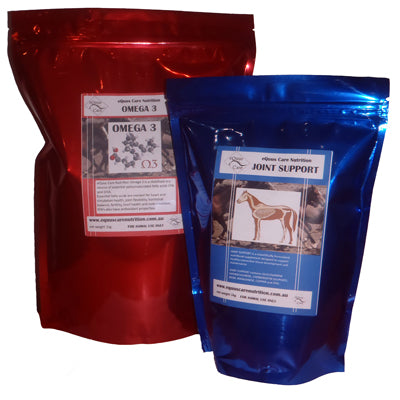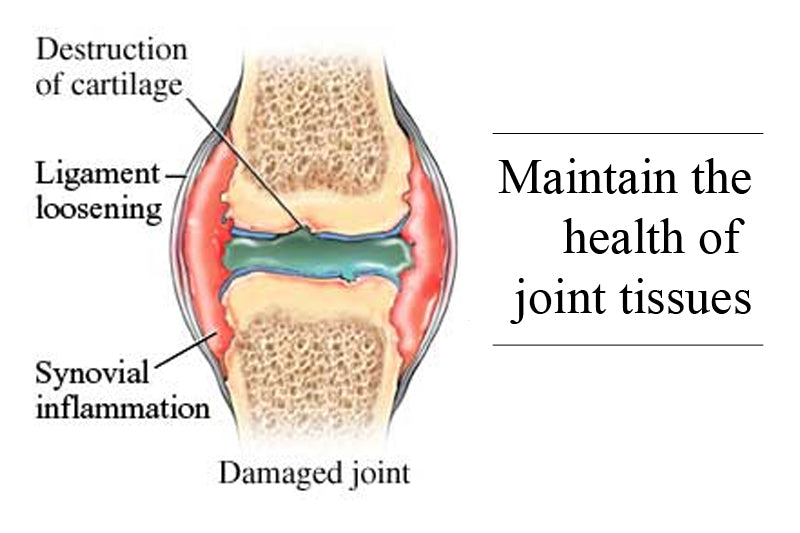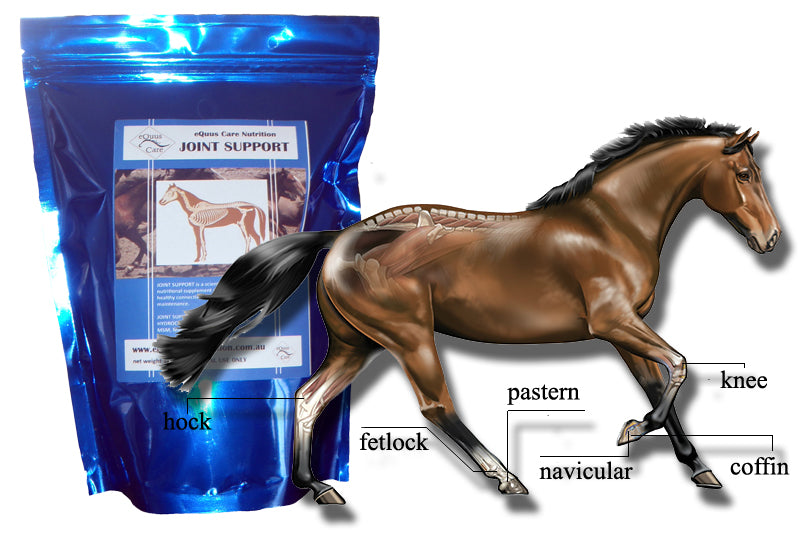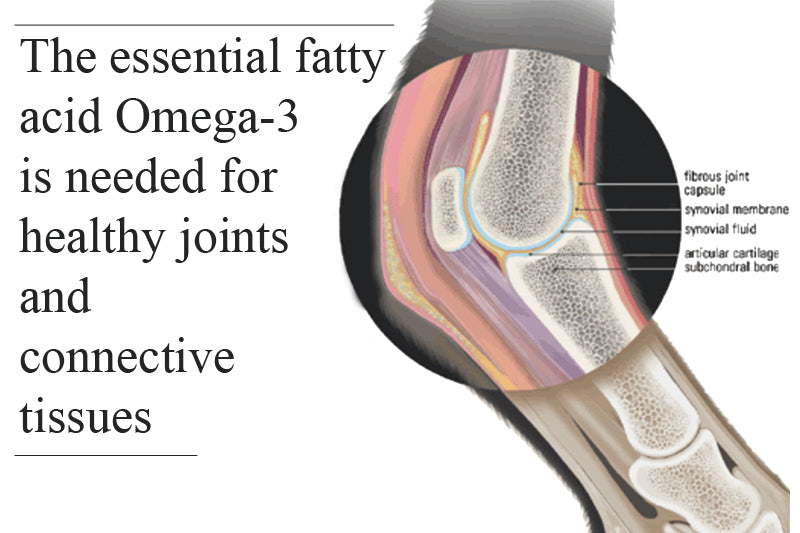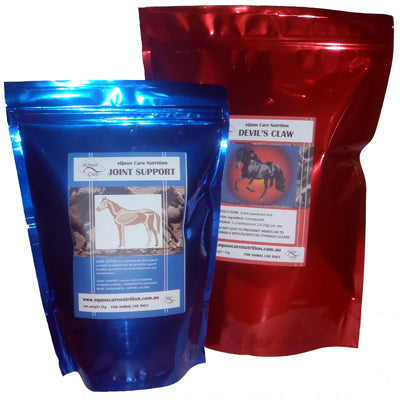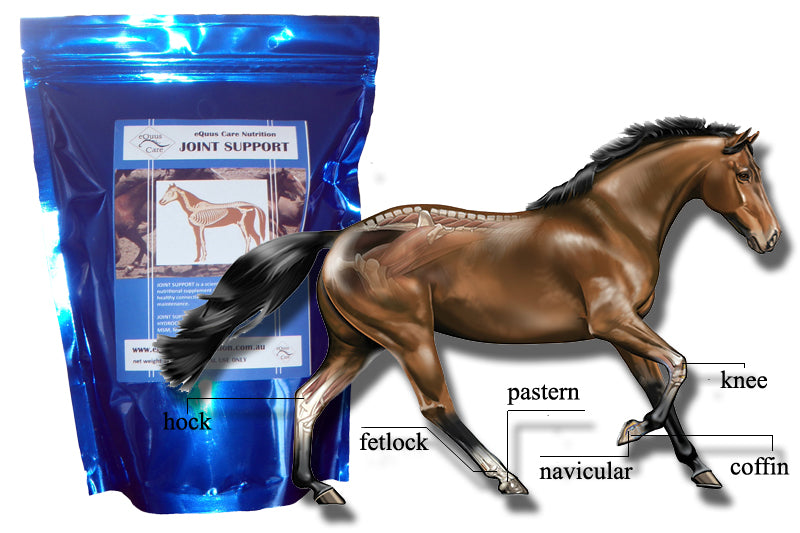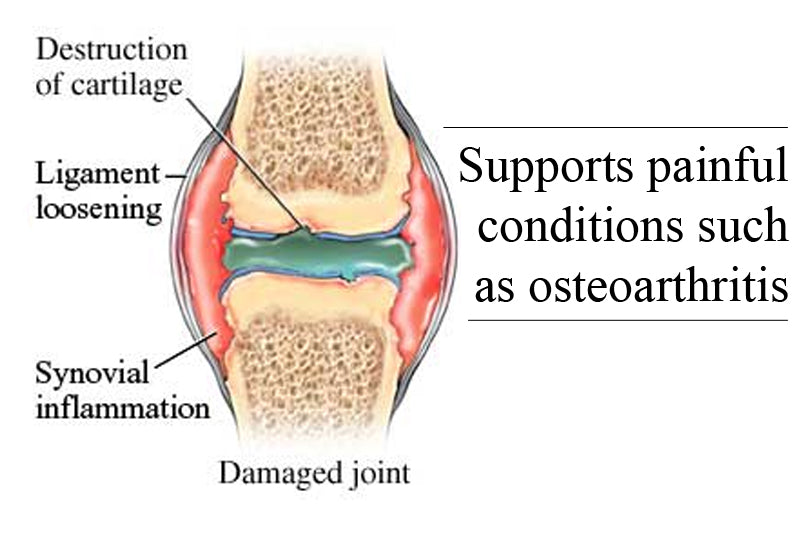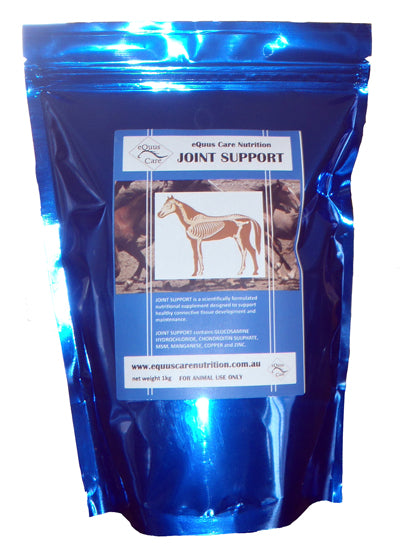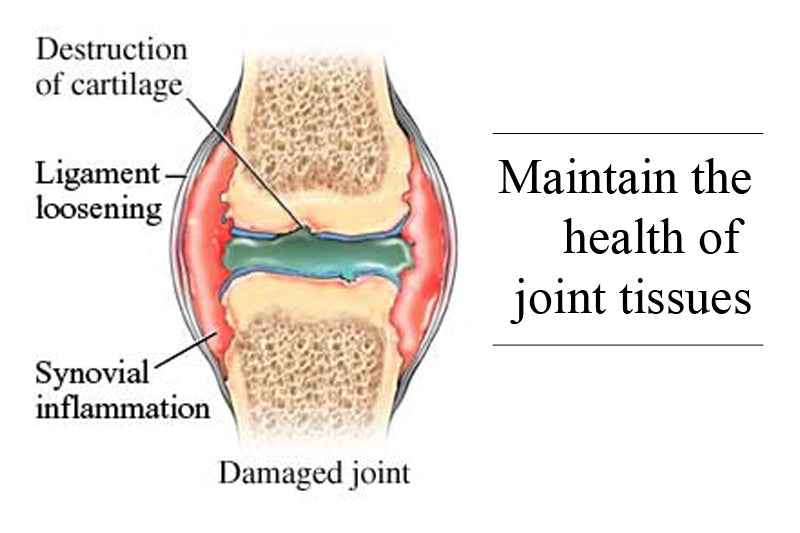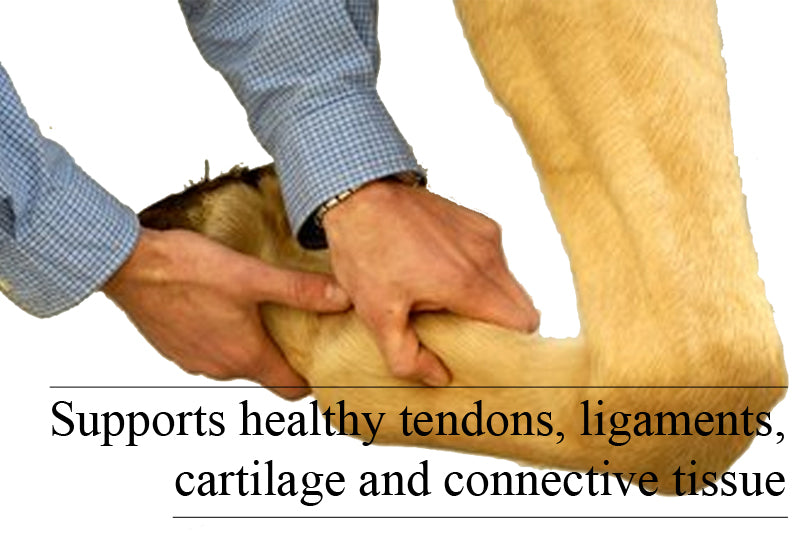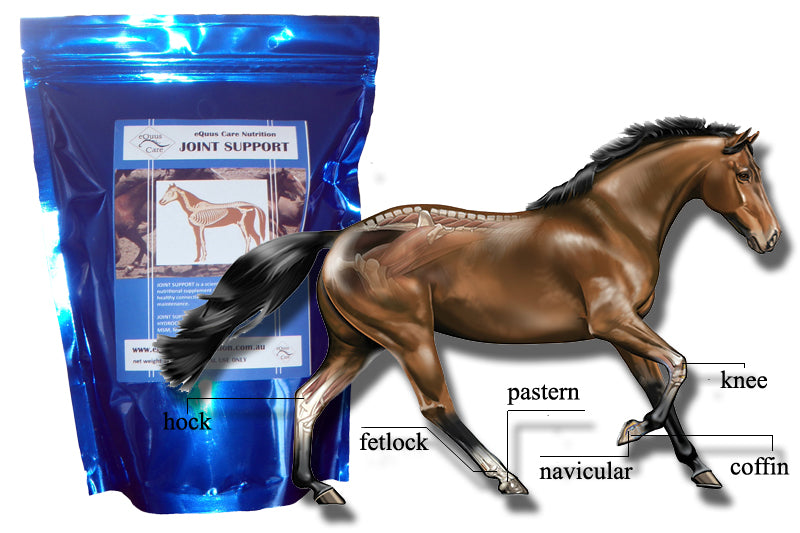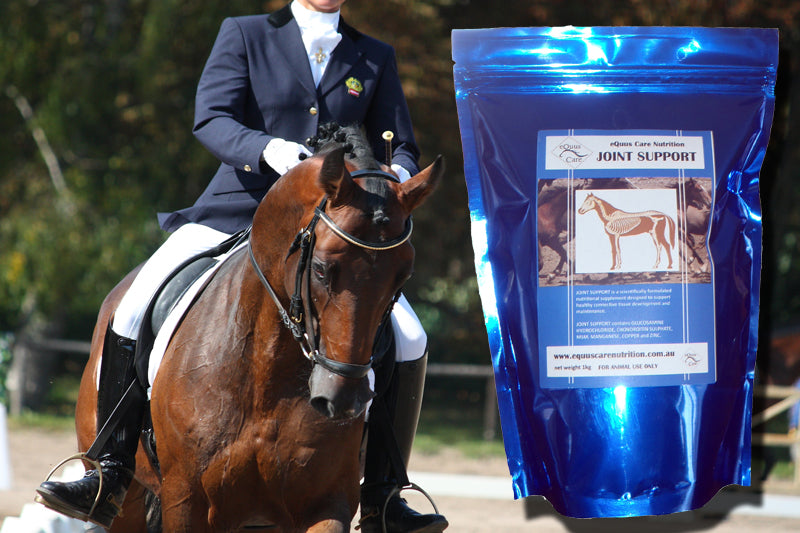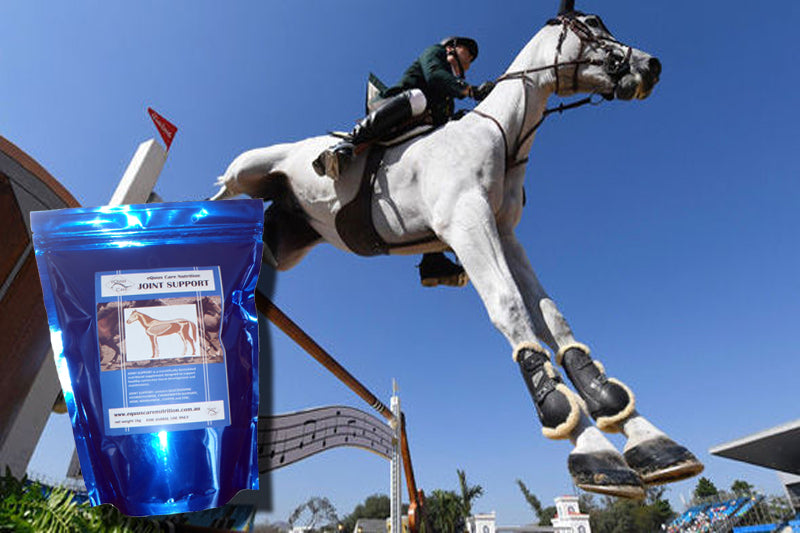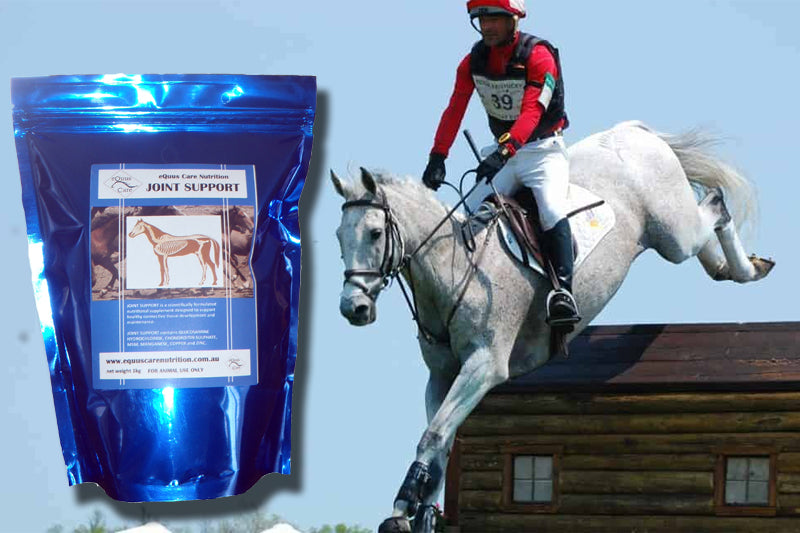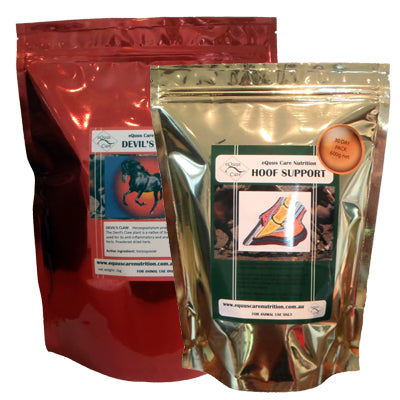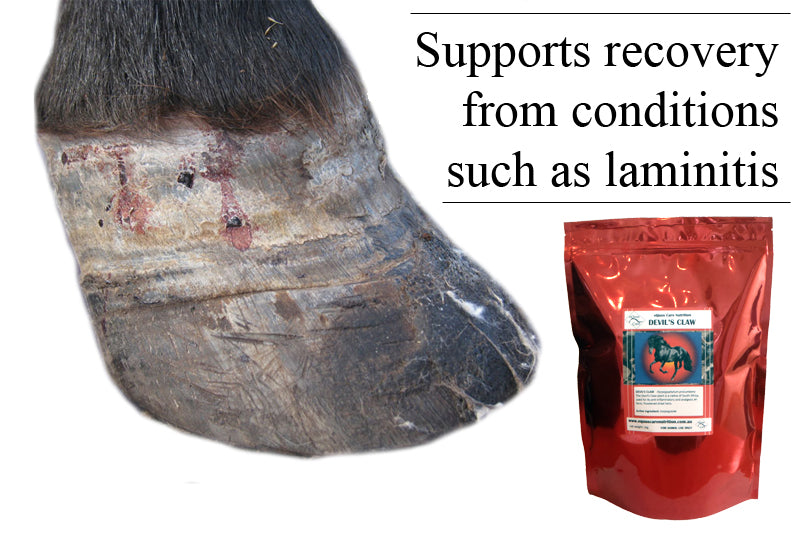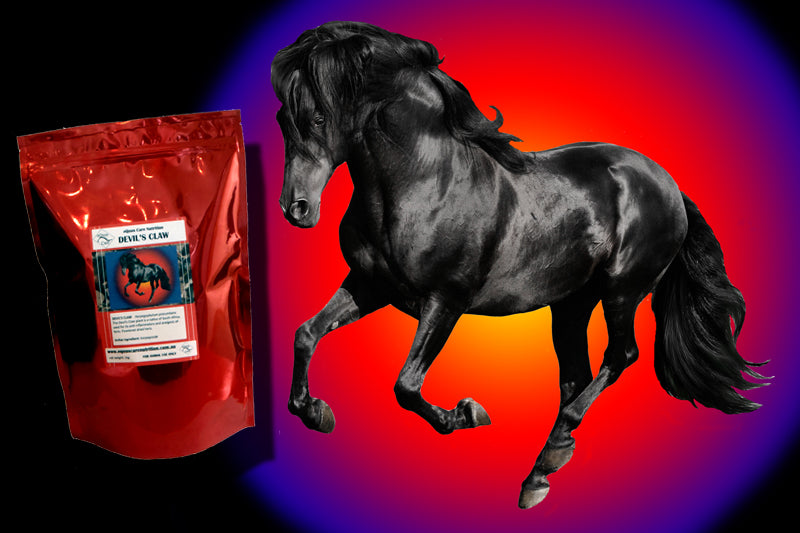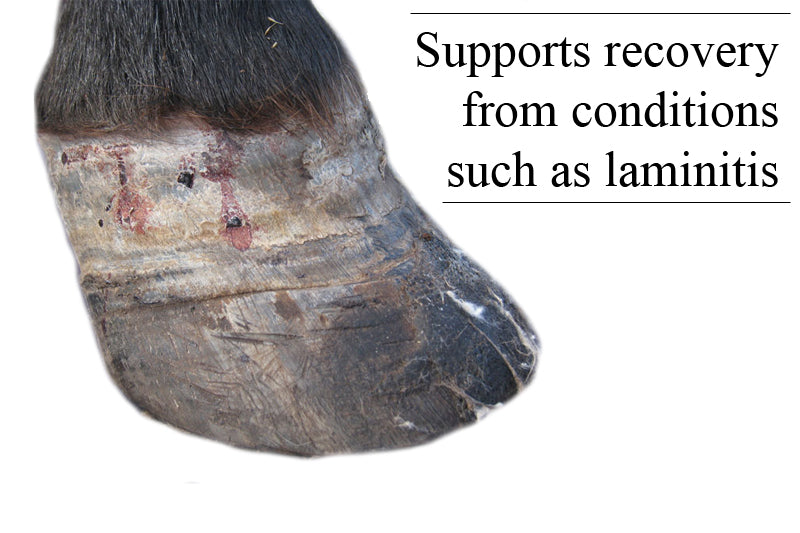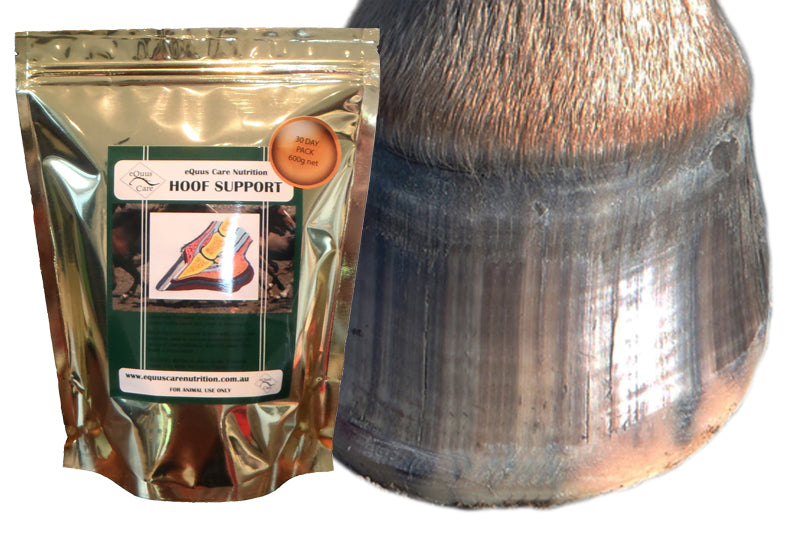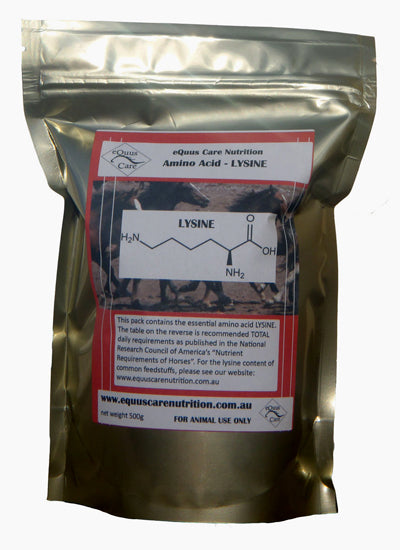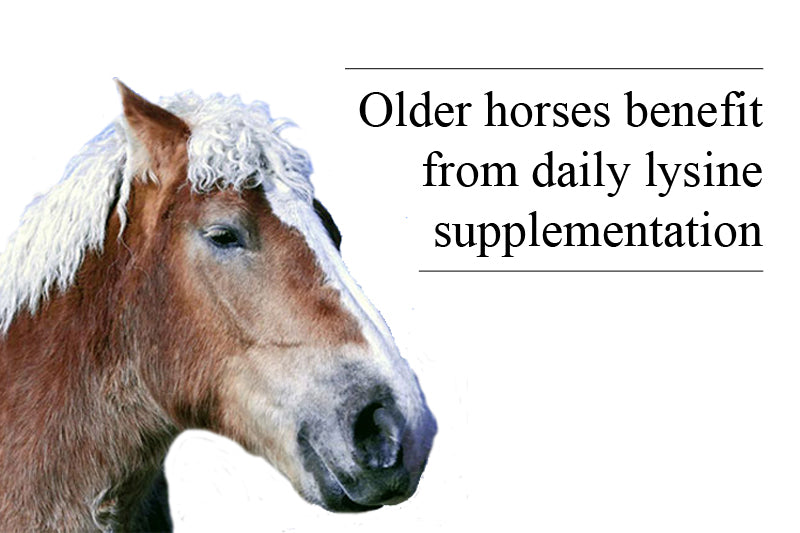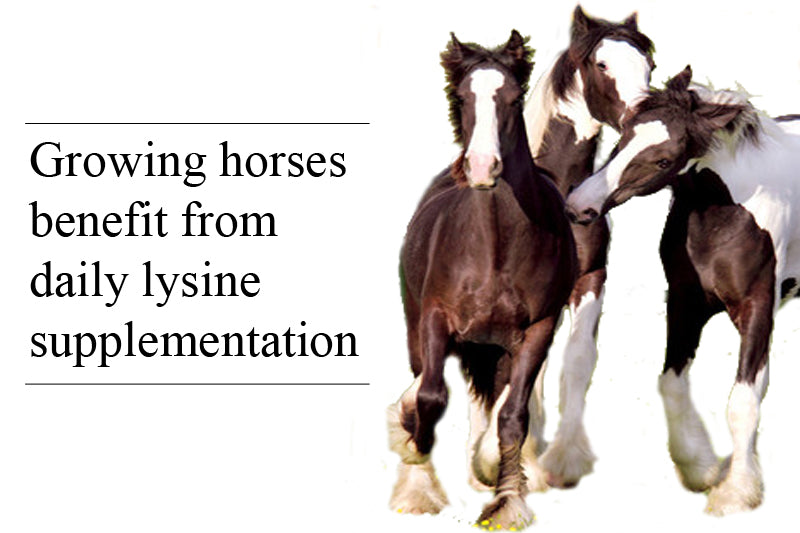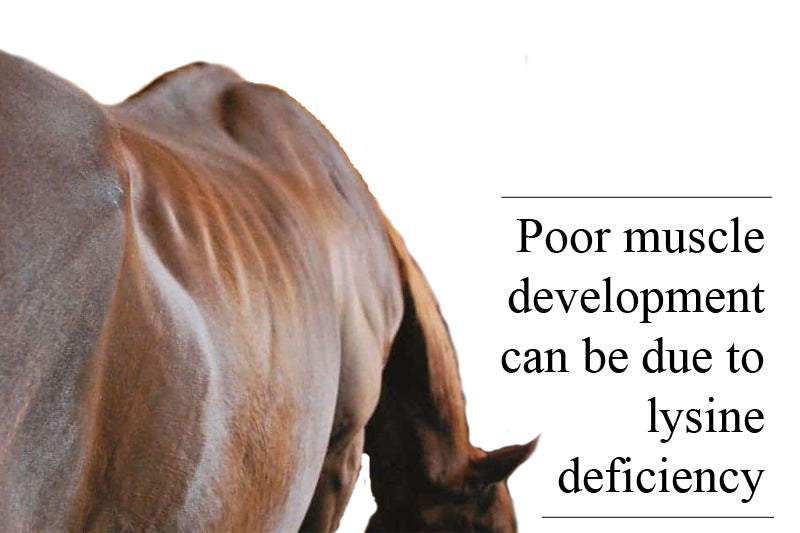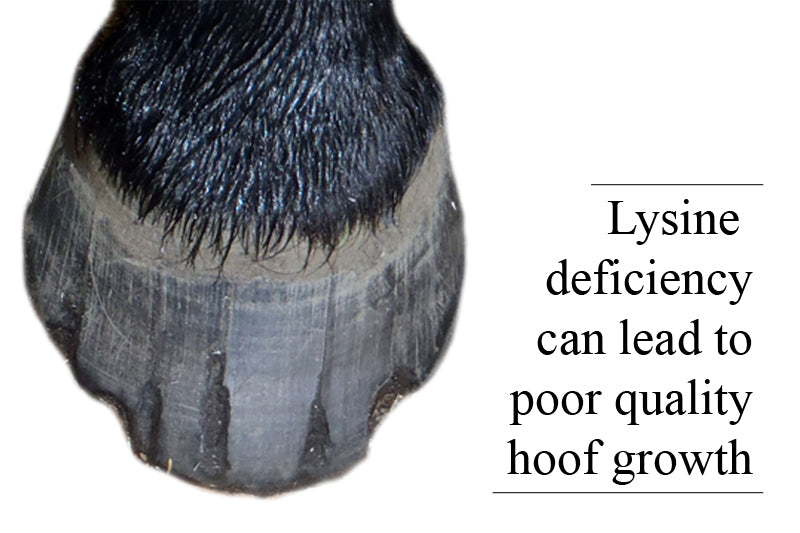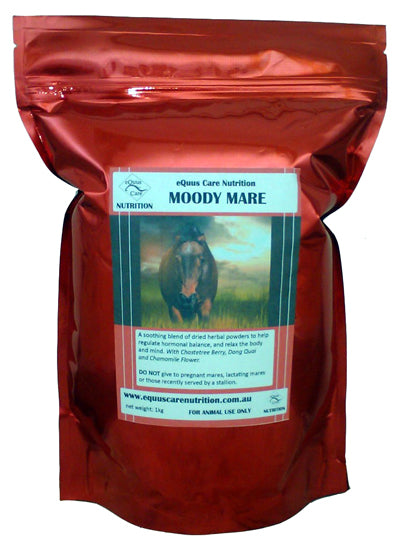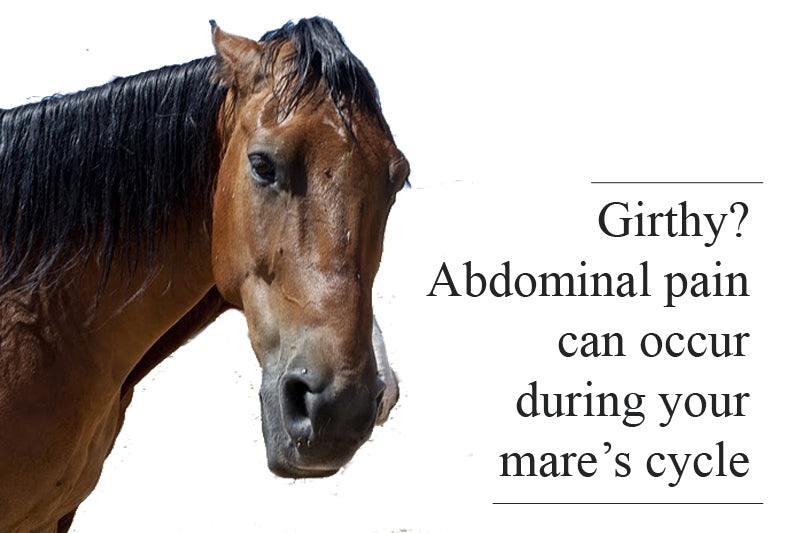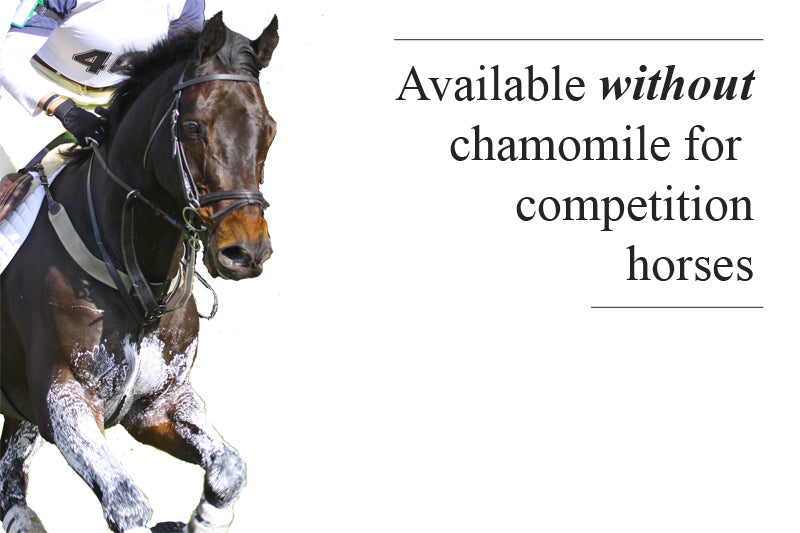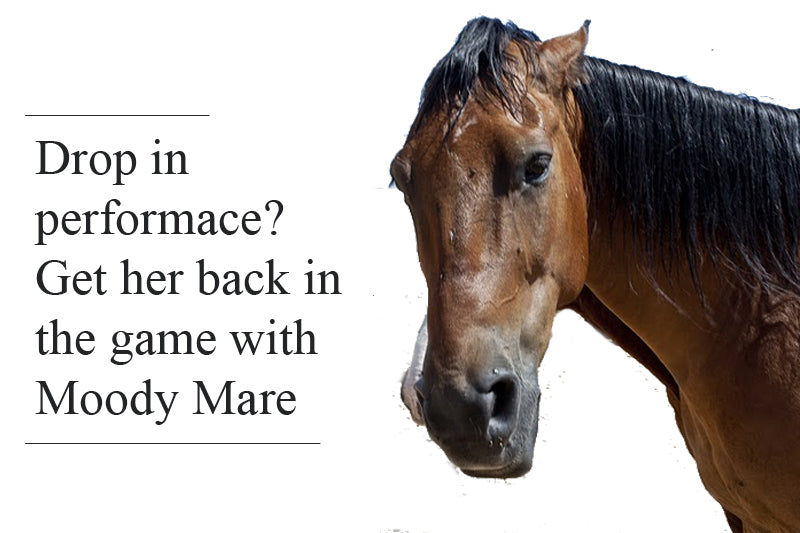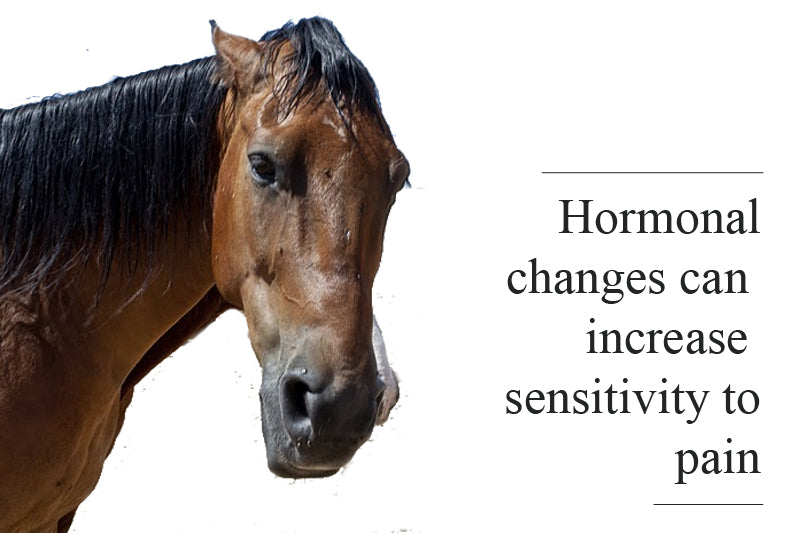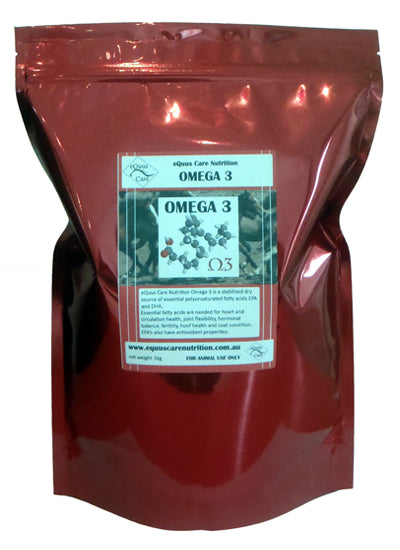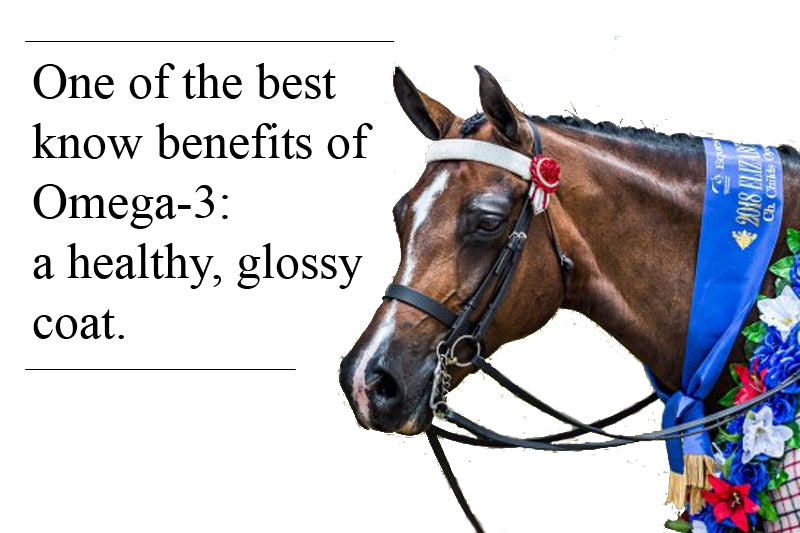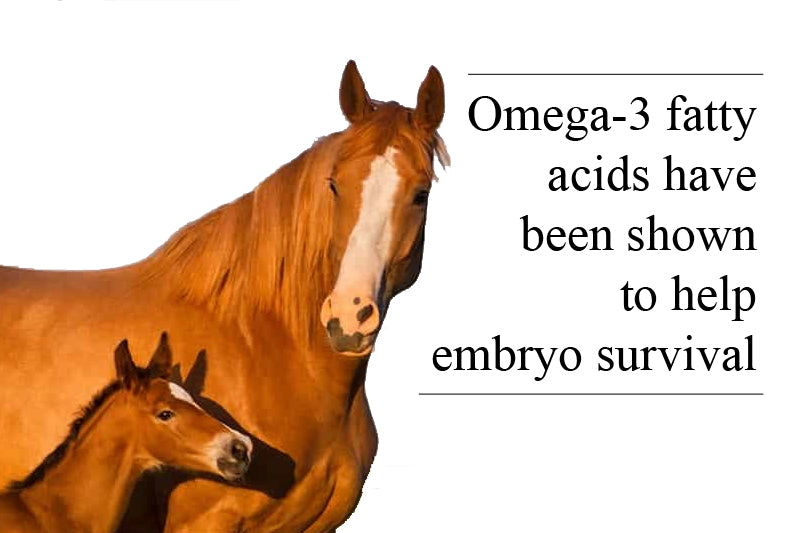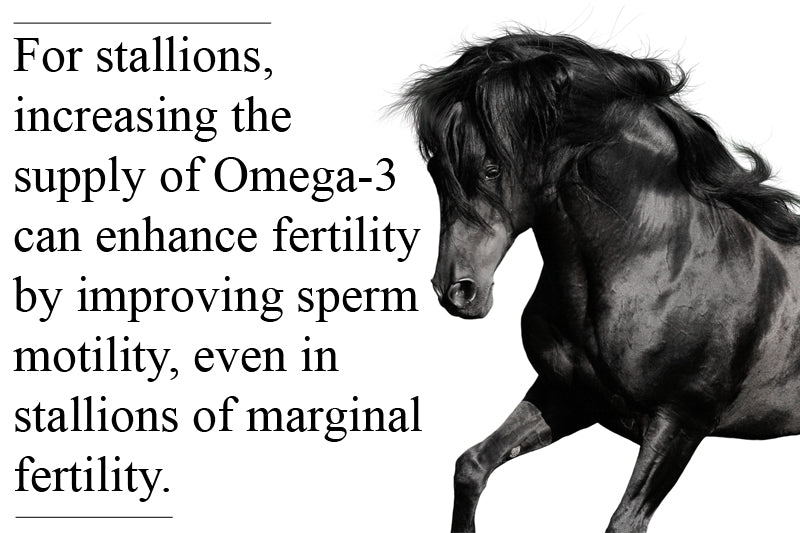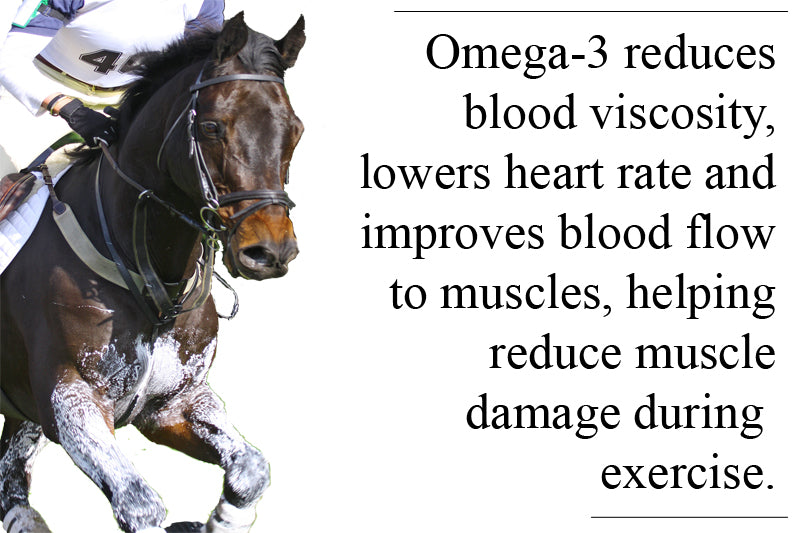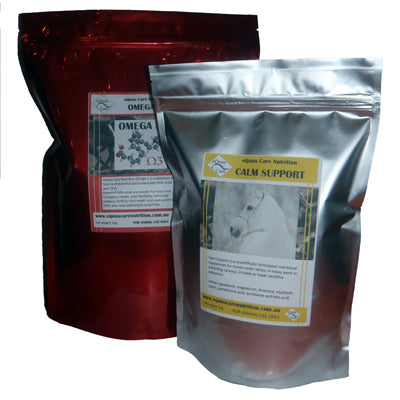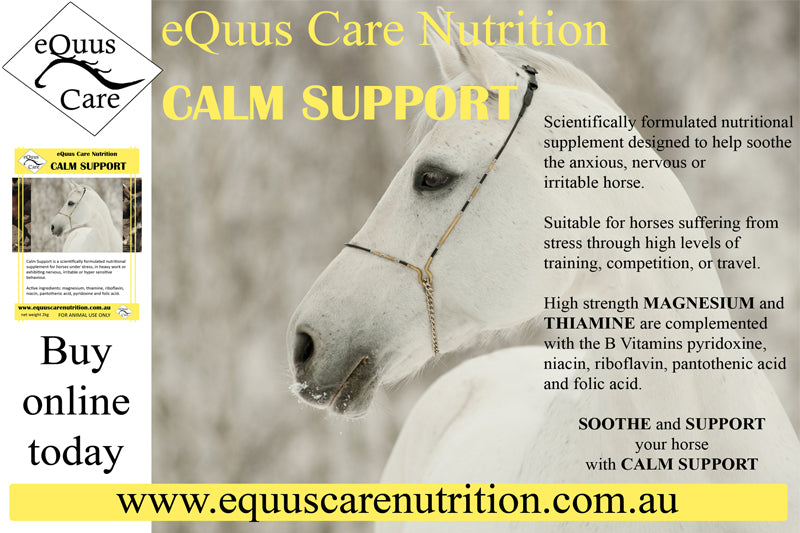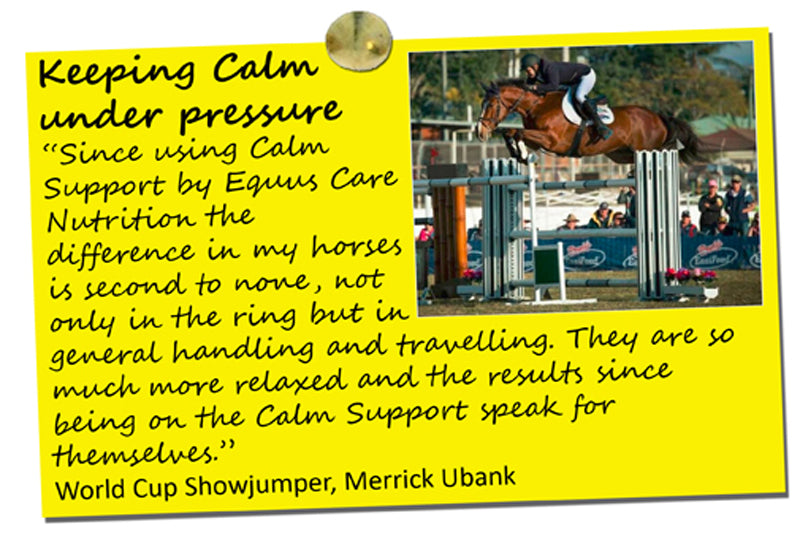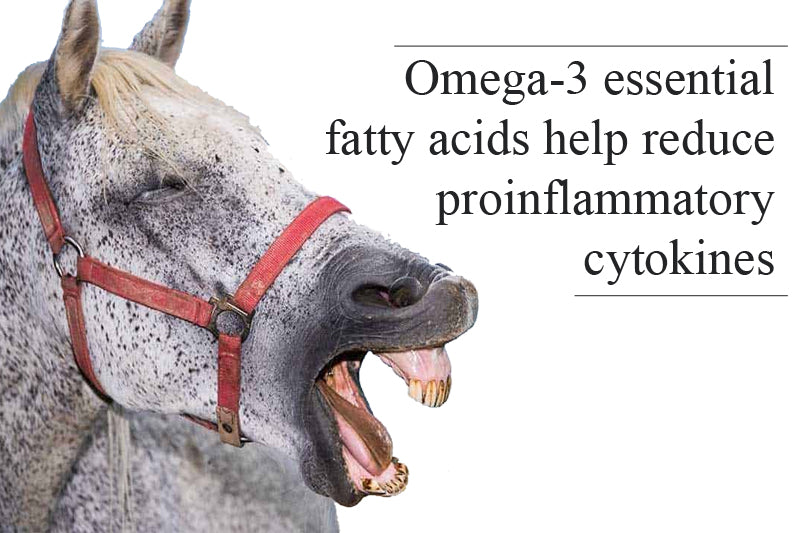+Collections
+NUTRITION ARTICLES
Find out how nutrition can affect your horse's health.
+STOCKISTS
A select number of retailers around the country carry our products - you can find them here.
Products
Amino-3
$32.45
-
Do you want to build muscle and put topline on your horse?
Do you want to improve his overall health and well-being?
Make sure your horse is getting the Essential Amino Acids he needs for optimum health with AMINO-3, a blend of Lysine, Methionine and Threonine. These protein-building amino acids MUST come through your horse's diet. Is your horse getting enough? The three essential amino acids required by a horse that are most often deficient in a horse's diet are lysine, methionine and threonine.
Does any of this sound familiar?- Inability to build muscle
- Poor exercise tolerance and recovery
- Muscle soreness
- Abnormal growth
- Abnormal bone development
- Impaired immune function
- Poor quality coat and hooves
THESE CAN ALL BE SIGNS THAT YOUR HORSE IS LACKING ESSENTIAL AMINO ACIDS
-
Lysine is a building block for protein. It’s an essential amino acid because the horse's body cannot make it, so he needs to obtain it from food. It’s important for normal growth and muscle turnover and used to form carnitine, a substance found in most cells of the body. Lysine is responsible for promoting bone growth in foals and maintenance of the skeletal structure in mature horses. It also enhances nitrogen balance and the overall growth of young horses. Lysine deficiency is linked to a variety of developmental orthopedic diseases in young horses, especially in the legs.
Methionine is the second most essential amino acid in the equine diet, and serves many key functions in the body, including support for connective tissue, liver function and detoxification, and strong hoof tissue. Methionine is critical for the growth and maintenance of coat, hair and hoof tissues. It also promotes the bioavailability of selenium, a critical trace mineral that is also, coincidentally, often deficient in the diet. If methionine is deficient in the diet, it will most often be manifest in poor coat, hair and hoof quality.
Threonine promotes overall growth, muscle mass retention and the efficient use of feed. It also is critical in the production of adrenaline and other important hormones. Threonine deficiency can manifest itself in poor body condition and lack of energy.
- 1 scoop (20g) treats a 500kg horse. Adjust amount given based on the weight of the horse or pony.
For foals, miniatures and small ponies please download our 'Supplementation Guide for Ponies and Miniatures'
- We would love to hear your feedback on this product. Drop us a line here:
-

Nutrition for athletic recovery: Your horse has given his all: strained muscle and sinew to give you every last ounce of power and speed. So what can you do to help aid his recovery? > read more
Calm Support
$41.98
-
NERVOUS, SPOOKY, ANXIOUS HORSE?
Does your horse get STRESSED in new situations? Have PROBLEMS travelling? SHYING or SPOOKING at unfamiliar objects? OVER REACTIVE to noise? Shows IRRITABLE or HYPER SENSITIVE behaviour?
THESE COULD BE THE RESULT OF MAGNESIUM AND VITAMIN B DEFICIENCY.
Calm Support has been formulated to fill nutritional deficiencies in the key vitamins and minerals that can lead to anxious behaviour. Ideal for stressful situations such as long distance travel, separation from paddock mates, relocation, or competition. Non-swabbable.
-
MAGNESIUM is a major mineral critical to the normal functioning of skeletal and heart muscle and the nervous system. It is a component of over 300 enzymes in the body. Hypersensitivity and irritability can be indicators of dietary magnesium deficiency. Diets high in calcium can result in a magnesium deficiency, as calcium can compete for absorption in the body.
B Vitamins are important to every cell and organ in the horse's body. B vitamins also work together, so supplementing with a combination of B vitamins is beneficial. A horse exhibiting nervousness, excitability, irritability, or jumpiness may be exhibiting symptoms of Vitamin B deficiency. B vitamin supplementation is recommended for horses being heavily exercised and for those under stress.
Thiamine (Vit B1) - Thiamine is required for the metabolism of fats, proteins and carbohydrates, for DNA and cell replication and for the transmission of nerve impulses. Thiamine can have a calming effect on horses, and symptoms of a thiamine deficiency include nervousness, irritability and excitability.Folic acid (Vit B9) - Adequate levels are vital to the production of normal levels of serotonin in the brain. Folic acid is also required for the normal production of red blood cells, protein metabolism and cell duplication. Heavy exercise causes folic acid levels to drop.
Pyridoxine (Vit B6) - Pyridoxine assists in the production of neurotransmitters in the brain and has a critical function in the use of glycogen in muscle cells. Nervousness or irritability may be a sign of dietary deficiency because of pyridoxine's function in the production of brain chemicals.
Niacin (Vit B3) - Niacin is needed for proper energy production, cholesterol, fatty acid and protein metabolism, DNA replication, cell reproduction and the normal functioning of the nervous system.
Pantothenic acid (Vit B5) - Pantothenic Acid is needed for energy metabolism, the manufacture of steroid hormones and for the chemicals needed in the transmission of nerve impulses.
Riboflavin (Vit B2) - Riboflavin plays a critical role in the generation of energy aerobically, the normal functioning of other B vitamins and is essential to the conversion of tryptophan into niacin.
- A 20g dose per day for a 500kg horse. This can be doubled if an animal is particularly stressed. As behaviour modifies, reduce dose to a maintenance dose of 20g per day.
A 20g scoop is included in the pack.For foals, miniatures and small ponies please download our 'Supplementation Guide for Ponies and Miniatures'
-

"Since using Calm Support from eQuus Care Nutrition the difference in my horses is second to none, not only in the ring but in general handling and travelling. They are so much more relaxed and the results speak for themselves". Merrick Ubank, World Cup Showjumper 
"I have been using your Calm Support for 5 months now and love it to bits, the improvement has been outstanding. I do endurance racing and over the 5 months his energy and calmness is unbelievable...On the weekend we got our first ever podium finish!" Alan W, Endurance Rider.
Devil's Claw
$119.80
-
IS YOUR HORSE IN PAIN? Lameness? Arthritis? Laminitis? Sore back? Stiff joints? Sore muscles?
Devil's Claw is Nature's ANALGESIC, and has been used for centuries for its ANTI-INFLAMMATORY, PAIN RELIEVING properties.
Unlike conventional medicines, such as Phenylbutazone which can be only given for short periods of time due to adverse side effects, DEVIL'S CLAW can be given for the longer term, providing much needed pain relief, particularly for horses with chronic conditions, such as arthritis.
Providing relief from pain will give your horse a better quality of life, and will give you peace of mind.
- 100% pure Devil's Claw root powder.
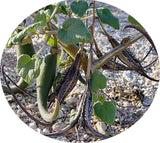 The Devil's Claw plant (Harpagophytum procumbens) is a native of South Africa, used for its anti-inflammatory and analgesic effects. The active ingredient of Devil's Claw is harpagoside, found in the roots and tubers. Its effectiveness has been found to be comparable with that of cortisone and phenylbutazone. Animal studies suggest that Devil's Claw can help fight inflammation, whilst human trials have seen a reduction in pain, and improved function in people suffering with osteoarthritis and back and neck pain.
The Devil's Claw plant (Harpagophytum procumbens) is a native of South Africa, used for its anti-inflammatory and analgesic effects. The active ingredient of Devil's Claw is harpagoside, found in the roots and tubers. Its effectiveness has been found to be comparable with that of cortisone and phenylbutazone. Animal studies suggest that Devil's Claw can help fight inflammation, whilst human trials have seen a reduction in pain, and improved function in people suffering with osteoarthritis and back and neck pain. - Dose: 10-20g per day. Do not give to pregnant mares, or horses with suspected stomach ulcers.
-
 A trial that compared a devil's claw formula with Bute was conducted in 20 horses with bone spavin. Ten horses were given Bute and ten were given the herbal formula. Horses were evaluated clinically by means of observation for gait asymmetry and irregularity on movement in a 6m circle, a flexion test, and xray confirmation within the previous 6 months. Each test was rated 0 (undetectable lameness) to 4 (maximum lameness), and a composite score (with a maximum score of 12 for serious lameness) was given at each examination. By day 120, the horses given Bute had a group score of 8.6, and those given the herbal formula had a score of 6; this was a statistically significant difference. Montaven S. Efficacy of a phytotherapeutic preparation based on Harpagophytum procumbens in case of bone spavin of adult horses. Prat. Vet Equine 1994
A trial that compared a devil's claw formula with Bute was conducted in 20 horses with bone spavin. Ten horses were given Bute and ten were given the herbal formula. Horses were evaluated clinically by means of observation for gait asymmetry and irregularity on movement in a 6m circle, a flexion test, and xray confirmation within the previous 6 months. Each test was rated 0 (undetectable lameness) to 4 (maximum lameness), and a composite score (with a maximum score of 12 for serious lameness) was given at each examination. By day 120, the horses given Bute had a group score of 8.6, and those given the herbal formula had a score of 6; this was a statistically significant difference. Montaven S. Efficacy of a phytotherapeutic preparation based on Harpagophytum procumbens in case of bone spavin of adult horses. Prat. Vet Equine 1994
-

What is laminitis?: Laminitis, also known as 'founder' is considered the second biggest killer of horses after colic. > read more 
Glucosamine, Chondroitin Sulphate and Equine Osteoarthritis: Recent research suggests that "supplemental glucosamine or chondroitin sulphate may help to prevent cartilage degeneration and treat OA (osteoarthritis)". > read more
gastriEASE
$90.00
-
Gastric upset in a horse is not uncommon: diarrhea, constipation, excess gas, stomach ulcers, colic. Causes of digestive system upset can be varied, from eating poor quality feed, poor parasite control, to enzyme deficiency or infection.
gastriEASE is formulated with 100% pure herbal ingredients to help soothe, protect and and support healing of the gastrointestinal tract. The ingredients have been selected for their numerous, scientifically studied effects on the gastro-intestinal tract including antiulcerogenic activity, acid normalisation, mucosa protection, intestinal anti-inflammatory activity, antispasmodic and intestinal motility.
High in Mucilage: The herbs in gastriEASE are also high in mucilage, a natural, slippery water soluble fibre which soothes inflammed gastrointestinal tissue, protects delicate mucous membranes, may also act as a prebiotic and normalises intestinal flora populations.
-
Meadowsweet - indicated for gastric ulceration, prevention of ulceration in horses, excess stomach acid, hyperacidity, gastritis, peptic ulceration, diarrhoea.
Fenugreek - indicated for gastric ulceration, gastritis, diarrhoea, constipation, ulcer protective effects, demulcent which lubricates and protects the alimentary mucous membranes.
Marshmallow Root - indicated for digestive complaints, gastroenteritis, gastric ulcers, colitis, diarrhoea, stomatitis. Demulcent which lubricates and protects the alimentary mucous membranes.
Chamomile - indicated for flatulence, mild colic, loss of appetite. Due to its calming properties it is useful for digestive issues that are caused by stress. It also has antispasmodic properties so is useful in relieving cramps in the intestinal tract. (Source: S. Wynn, 'Veterinary Herbal Medicine') - A level scoop (provided in pack) provides approximately 20g.
Horses: 2-3 level scoops per day mixed with feed.
Ponies: 1 level scoop per day mixed with feedFor foals, miniatures and small ponies please download our 'Supplementation Guide for Ponies and Miniatures'
- We would love to hear your feedback on this product. Drop us a line here:
Hoof Builder
$95.00
- Want a better hoof? Combine two of the best supplements for hoof growth: Hoof Support and Omega-3. Hoof Support has the key vitamins, minerals and proteins needed to build a strong, healthy hoof. Our Omega-3 product is a no mess, easy solution to supplementing this essential fatty acid - it's a dry powder, simply mix into dampened feed. Omega-3's are needed for healthy hoof tissue - and you'll also get the benefit of a shiny coat!
- Hoof Support Ingredients:
BIOTIN - has been shown to improve hoof quality in a certain percentage of horses with shelly, brittle feet.
PYRIDOXINE - used to synthesise protein into keratin, the major structural component of the hoof.
NIACIN - needed in the body for protein metabolism, important for hoof growth as the hoof wall is over 90% protein.
THIAMINE - a B vitamin which contains sulphur.
SULPHUR -necessary to form strong hooves. Sources of bio available, organic sulphur in HOOF SUPPORT include MSM, methionine, biotin and thiamine.
ZINC - present in high concentration in normal hoof tissue, with an important anti oxidant role in protecting hoof tissue.
COPPER - essential to good health, with an important anti oxidant role in protecting hoof tissue.
METHIONINE, LYSINE, THREONINE - essential amino acids:
the building blocks of the body and the hoof. -
Hoof Support: A level 20g scoop treats a 500kg horse. Mix into dampened feed. Adjust amount given based on the weight of the horse or pony.
For foals, miniatures and small ponies please download our 'Supplementation Guide for Ponies and Miniatures'.
Omega-3:
Horses 2 scoops per day (30g) Ponies 1 scoop per day (15g) Breeding Stallions 4 scoops per day (60g) Broodmares 4 scoops per day (60g) from 10 days pre-foaling to 52 days postpartum, or for whole lactation period until weaning. -

"Who says hoof supplements don't work....? I knew Hoof Support was good for them, but I didn't think it would have made this big a difference!" Cat S, Tas, commenting on the 2 month's of improved new growth, clearly visible in her horse's hoof. -

Feeding the hoof: Protein
The equine hoof is very metabolically active tissue: it needs to be continually replaced as the lowest section is rubbed away by contact with the ground. > read more

Feeding the hoof: Vitamins
The principal vitamins involved in healthy hoof growth are the B group vitamins. These are: Thiamine (B1), Riboflavin (B2), Niacin (B3), Pantothenic Acid (B5), Pyridoxine (B6), Biotin (B7), Folic Acid (B9), and Cyanocobalamin (B12). > read more

Feeding the horse: Minerals
Four minerals in particular affect the hoof: sulphur, zinc, copper and selenium. > read more

Copper, zinc and white line disease
White Line Disease can make horses sore and can lead to severe lameness, abscessing and even bone erosion if left untreated. > read more

The ABCs of EFAs
EFA isn't another equestrian governing body, it stands for Essential Fatty Acids. These are the polyunsaturated 'good' fats that the body needs for various metabolic processes. > read more
Hoof Support
$41.10
-
Thin walls, thin soles, flaking, cracking, chipping, breaking, splitting, or slow hoof growth? These can be caused by dietary deficiency, causing discomfort or lameness for your horse, and worry and lost riding time for you. What's worse is that a compromised hoof then provides an ideal site for bacterial and fungal pathogens to take hold.
Stop these problems occuring by building a strong, robust,healthy hoof.
With active ingredients such as BIOTIN and METHIONINE, HOOF SUPPORT has all the essential amino acids, vitamins and minerals your horse needs for healthy hoof growth.
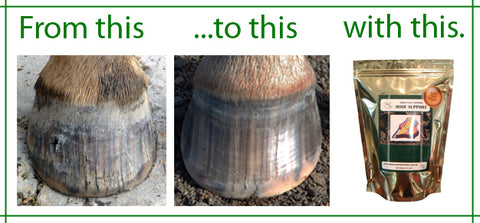
-
BIOTIN - has been shown to improve hoof quality in a certain percentage of horses with shelly, brittle feet.
PYRIDOXINE - used to synthesise protein into keratin, the major structural component of the hoof.
NIACIN - needed in the body for protein metabolism, important for hoof growth as the hoof wall is over 90% protein.
THIAMINE - a B vitamin which contains sulphur.
SULPHUR -necessary to form strong hooves. Sources of bio available, organic sulphur in HOOF SUPPORT include MSM, methionine, biotin and thiamine.
ZINC - present in high concentration in normal hoof tissue, with an important anti oxidant role in protecting hoof tissue.
COPPER - essential to good health, with an important anti oxidant role in protecting hoof tissue.
METHIONINE, LYSINE, THREONINE - essential amino acids:
the building blocks of the body and the hoof. - A level 20g scoop treats a 500kg horse. Mix into dampened feed. Adjust amount given based on the weight of the horse or pony.
For foals, miniatures and small ponies please download our 'Supplementation Guide for Ponies and Miniatures'
-

"Who says hoof supplements don't work....? I knew Hoof Support was good for them, but I didn't think it would have made this big a difference!" Cat S, Tas, commenting on the 2 month's of improved new growth, clearly visible in her horse's hoof. -

Feeding the hoof: Protein
The equine hoof is very metabolically active tissue: it needs to be continually replaced as the lowest section is rubbed away by contact with the ground. > read more

Feeding the hoof: Vitamins
The principal vitamins involved in healthy hoof growth are the B group vitamins. These are: Thiamine (B1), Riboflavin (B2), Niacin (B3), Pantothenic Acid (B5), Pyridoxine (B6), Biotin (B7), Folic Acid (B9), and Cyanocobalamin (B12). > read more

Feeding the horse: Minerals
Four minerals in particular affect the hoof: sulphur, zinc, copper and selenium. > read more

Copper, zinc and white line disease
White Line Disease can make horses sore and can lead to severe lameness, abscessing and even bone erosion if left untreated. > read more

What is laminitis?
Laminitis, also known as 'founder' is considered the second biggest killer of horses after colic. > read more
Immune Support
$89.99
- Is your horse suffering from one or more of the 3 BIG HITS to his immune system? Stress, nutrition and age. If a horse is young or very old, if they are not receiving adequate levels of nutrition, or when they are under stress, their immune system may fail to protect them effectively, increasing the risk of disease and infection.
In stressed animals there can be an increase in steroid production which tends to suppress the immune system. Weaning, the environment, traveling, competitions, separation anxiety or herd dynamics can all be forms of mental stress. Hard work, physical injury or stallion breeding overload can all be forms of physical stress. It's no surprise then that a performance horse traveling for many hours to a big competition, stabled in a strange environment, competes for three days then picks up that persistent cough that is going around. Other conditions such as Cushing's disease also suppress the immune system.Help keep your horse's Immune System fighting fit with all the nutrients that are essential for his immune system to function optimally. -
GLUTAMINE: blood levels of glutamine drop in exercising horses. Low availability of glutamine can severely compromise the function of the immune system cells. Glutamine is needed to: Regulate T cell proliferation, cytokine production and cytokine sensitivity. Regulate B cell antibody production and secretion. Influence the number of activated killer cells. Support macrophage activity. Provide an energy source for immune system cells.
The other nutrients in IMMUNE SUPPORT are needed for antioxidant enzyme systems that are the body's first line of defence against free radical damage. SELENIUM, METHIONINE and GLUTAMINE are needed for Glutathione Peroxidase, a crucial antioxidant system for all tissues, including the intestinal tract.
COPPER & ZINC: needed for the antioxidant enzyme Superoxide Dismutase.
METHIONINE: needed for the antioxidant acetyl-L-carnitine and for Peroxiredoxins.
VITAMIN E: an antioxidant needed to protect muscle tissue from free radical damage.
L-CARNITINE: needed for the antioxidant acetyl-L-carnitine. Carnitine can help with insulin sensitivity.
Supplementary L-Carnitine has beneficial effects in exercising horses with increased muscle adaptation to exercise. - 1 scoop (30g) per day for a 500kg horse. Adjust amount given based on the weight of the horse or pony.
For foals, miniatures and small ponies please download our 'Supplementation Guide for Ponies and Miniatures'
- We would love to hear your feedback on this product. Drop us a line here:
-

Boosting immune function with nutrition
At some point in most horse’s lives there are times when their immune system is particularly stressed: fighting infection, extremes of weather, transport, injury. > read more
itchEASE
$96.60
- Skin is the largest organ in the horse's body, its the protective wrap around layer that protects all of the other organs, muscles and tissues from the external environment. Apart from trauma, common skin conditions can be caused by bacteria, viruses, fungi, allergies, nutritional deficiencies and stress. A skin condition can sometimes indicate that the horse's overall immune system is depressed or compromised. itchEASE is a blend of powdered herbs, with nutrients to support healthy skin and hair growth.
-
Burdock - used for chronic skin conditions, particularly where there is dry, scaly skin. As an alterative herb it helps restore the body back to balance.
Sarsparilla - used for atopic dermatitis, and chronic inflammatory skin conditions. As an alterative it helps bring the body back to balance.
Cleavers - useful for skin conditions and as a tonic for the lymphatic system.
Nettle - used for strengthening the whole body. Nutrients needed for shiny hair.
Chamomile - helps relieve stress, has anti-allergy and anti-microbial properties. Assists wound healing - helpful when persistent scratching has broken the skin.
Ginger - a warming herb that is good for blood circulation to the periphery.
-
A scoop is provided in the pack.
Horses: 4 level scoops (40g) mixed with feed. If feeding morning and night, split the dose into the two feeds.
Ponies: 2 level scoops (20g) mixed with feed. If feeding morning and night, split the dose into the two feeds.For foals, miniatures and small ponies please download our 'Supplementation Guide for Ponies and Miniatures'
-
 "After 3 days on your itchEASE my Friesian WB Llewella has not scratched once today. We've shredded rugs, taken off hunks of skin and flesh, ended up bleeding. Today she is head down bum up, grazing and relaxed....I know I posted a few days ago, but words cannot express how grateful I am to you. I'm so overjoyed, I couldn't imagine having hours in a row rug free for Llewella, let alone two days. I've been crying today, I'm so happy and more importantly so is Llew". Linda S, WA.
"After 3 days on your itchEASE my Friesian WB Llewella has not scratched once today. We've shredded rugs, taken off hunks of skin and flesh, ended up bleeding. Today she is head down bum up, grazing and relaxed....I know I posted a few days ago, but words cannot express how grateful I am to you. I'm so overjoyed, I couldn't imagine having hours in a row rug free for Llewella, let alone two days. I've been crying today, I'm so happy and more importantly so is Llew". Linda S, WA.
Joint Builder
$215.00
- Combine our best Joint Supplements to build and protect your horse's ligaments, tendons and connective tissues. Joint Support provides high therapeutic levels of MSM, Glucosamine, Chondroitin Sulphate, Manganese, Copper and Zinc, while our Omega-3 product is an easy-to-use, no mess, dry powder - a simple way to supplement this essential fatty acid.
-
Joint Support:
CHONDROITIN SULPHATE is a structural component of joint cartilage. The structure of chondroitin sulphate in cartilage gives cartilage much of its compression resistance, providing shock absorption within the joint. Loss of chondroitin sulphate in cartilage may lead to osteoarthritis.
GLUCOSAMINE HYDROCHLORIDE forms the backbone of glycosaminoglycans (GAGs), the building blocks of cartilage and other connective tissue.
MSM is a source of the mineral sulphur, required for the formation of cross-bridges between collagen molecules. These add strength and stability to the structure of collagen rich ligaments, tendons and joint tissues. Glucosamine functions better when there is an adequate source of sulphur.
MANGANESE is a trace mineral that is required by the body for the production of chondroitin sulphates, important in maintaining normal joint cartilage and repairing cartilage. Dietary deficiencies of manganese may result in the abnormal development of bones and joints, and impaired ability to make and repair joint cartilage.
COPPER is a trace mineral which is required for the production of normal connective tissue, including tendons, ligaments and cartilage joint lining. Copper deficiency has been indicated in developmental bone disease, including osteochondrosis dessicans. Dietary deficiency of copper may result in bone and joint disease, and tendon and ligament problems.
ZINC is a trace mineral needed in bone and joint health. Zinc is part of antioxident enzymes in the body which neutralise free radicals before they can damage normal body tissue.
-
Joint Support: One level scoop (30g) treats a 500kg horse.
For foals, miniatures and small ponies please download our 'Supplementation Guide for Ponies and Miniatures'Omega-3
Horses 2 scoops per day (30g) Ponies 1 scoop per day (15g) Breeding Stallions 4 scoops per day (60g) Broodmares 4 scoops per day (60g) from 10 days pre-foaling to 52 days postpartum, or for whole lactation period until weaning. - We would love to hear your feedback on this product. Drop us a line here:
-

Glucosamine, Chondroitin Sulphate and Equine Osteoarthritis
Recent research suggests that "supplemental glucosamine or chondroitin sulphate may help to prevent cartilage degeneration and treat OA (osteoarthritis)" > read more
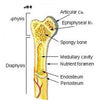
Developmental Orthopaedic Disease: Physitis
In an attempt to meet specific demands, load-bearing structures have faltered and suffered accordingly. Hence, we are now presented with an array of anatomical problems that require investigation. > read more

What is OCD?
OCD, or Osteochondritis Dissecans is a developmental orthopaedic disease that is relatively common, and can affect any horse breed. > read more

3 big hitters in the fight against osteoarthritis
Osteoarthritis is a chronic condition in which there is progressive degeneration of one or more joints. Symptoms include joint swelling, pain, instability, restrictions in movement and functional impairment. > read more

The ABCs of EFAs
EFA isn't another equestrian governing body, it stands for Essential Fatty Acids. These are the polyunsaturated 'good' fats that the body needs for various metabolic processes. > read more
Joint Relief
$215.00
- Does your horse have a joint injury, joint inflammation or arthritis? Combine two of our powerful supplements to support joint recovery and pain management. Joint Support provides key nutrients and nutraceuticals needed to support the body as it builds and repairs joint tissue, whilst Devil's Claw is a natural herb well known for its anti-inflammatory and pain relieving properties.
-
100% pure Devil's Claw root powder
 The Devil's Claw plant (Harpagophytum procumbens) is a native of South Africa, used for its anti-inflammatory and analgesic effects. The active ingredient of Devil's Claw is harpagoside, found in the roots and tubers. Its effectiveness has been found to be comparable with that of cortisone and phenylbutazone. Animal studies suggest that Devil's Claw can help fight inflammation, whilst human trials have seen a reduction in pain, and improved function in people suffering with osteoarthritis and back and neck pain.
The Devil's Claw plant (Harpagophytum procumbens) is a native of South Africa, used for its anti-inflammatory and analgesic effects. The active ingredient of Devil's Claw is harpagoside, found in the roots and tubers. Its effectiveness has been found to be comparable with that of cortisone and phenylbutazone. Animal studies suggest that Devil's Claw can help fight inflammation, whilst human trials have seen a reduction in pain, and improved function in people suffering with osteoarthritis and back and neck pain.Joint Support:
CHONDROITIN SULPHATE is a structural component of joint cartilage. The structure of chondroitin sulphate in cartilage gives cartilage much of its compression resistance, providing shock absorption within the joint. Loss of chondroitin sulphate in cartilage may lead to osteoarthritis.
GLUCOSAMINE HYDROCHLORIDE forms the backbone of glycosaminoglycans (GAGs), the building blocks of cartilage and other connective tissue.
MSM is a source of the mineral sulphur, required for the formation of cross-bridges between collagen molecules. These add strength and stability to the structure of collagen rich ligaments, tendons and joint tissues. Glucosamine functions better when there is an adequate source of sulphur.
MANGANESE is a trace mineral that is required by the body for the production of chondroitin sulphates, important in maintaining normal joint cartilage and repairing cartilage. Dietary deficiencies of manganese may result in the abnormal development of bones and joints, and impaired ability to make and repair joint cartilage.
COPPER is a trace mineral which is required for the production of normal connective tissue, including tendons, ligaments and cartilage joint lining. Copper deficiency has been indicated in developmental bone disease, including osteochondrosis dessicans. Dietary deficiency of copper may result in bone and joint disease, and tendon and ligament problems.
ZINC is a trace mineral needed in bone and joint health. Zinc is part of antioxident enzymes in the body which neutralise free radicals before they can damage normal body tissue. -
Joint Support: One level scoop (30g) treats a 500kg horse. Adjust the amount given based on the weight of the horse or pony.
For foals, miniatures and small ponies please download our 'Supplementation Guide for Ponies and Miniatures'Devil's Claw: 10-20g per day. Do not give to pregnant mares, or horses with suspected stomach ulcers.
- We would love to hear your feedback on this product. Drop us a line here:
-

Glucosamine, Chondroitin Sulphate and Equine Osteoarthritis
Recent research suggests that "supplemental glucosamine or chondroitin sulphate may help to prevent cartilage degeneration and treat OA (osteoarthritis)" > read more

Developmental Orthopaedic Disease: Physitis
In an attempt to meet specific demands, load-bearing structures have faltered and suffered accordingly. Hence, we are now presented with an array of anatomical problems that require investigation. > read more

What is OCD?
OCD, or Osteochondritis Dissecans is a developmental orthopaedic disease that is relatively common, and can affect any horse breed. > read more

3 big hitters in the fight against osteoarthritis
Osteoarthritis is a chronic condition in which there is progressive degeneration of one or more joints. Symptoms include joint swelling, pain, instability, restrictions in movement and functional impairment. > read more
Joint Support
$165.00
-
Joint Support is scientifically formulated with 6 key active ingredients: Glucosamine, MSM, Chondroitin Sulphate, Manganese, Copper and Zinc. These are at therapeutic values, meaning they are at high enough levels to actually make a difference. Very few joint supplements currently available provide such a comprehensive formula of therapeutic ingredients combined with the minerals needed for optimum joint tissue formation and health:
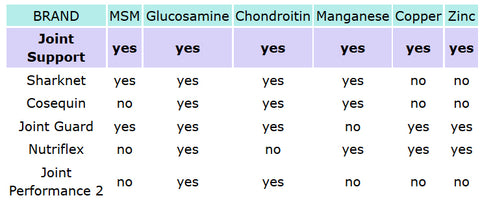
-
CHONDROITIN SULPHATE is a structural component of joint cartilage. The structure of chondroitin sulphate in cartilage gives cartilage much of its compression resistance, providing shock absorption within the joint. Loss of chondroitin sulphate in cartilage may lead to osteoarthritis.
GLUCOSAMINE HYDROCHLORIDE forms the backbone of glycosaminoglycans (GAGs), the building blocks of cartilage and other connective tissue.
MSM is a source of the mineral sulphur, required for the formation of cross-bridges between collagen molecules. These add strength and stability to the structure of collagen rich ligaments, tendons and joint tissues. Glucosamine functions better when there is an adequate source of sulphur.
MANGANESE is a trace mineral that is required by the body for the production of chondroitin sulphates, important in maintaining normal joint cartilage and repairing cartilage. Dietary deficiencies of manganese may result in the abnormal development of bones and joints, and impaired ability to make and repair joint cartilage.
COPPER is a trace mineral which is required for the production of normal connective tissue, including tendons, ligaments and cartilage joint lining. Copper deficiency has been indicated in developmental bone disease, including osteochondrosis dessicans. Dietary deficiency of copper may result in bone and joint disease, and tendon and ligament problems.
ZINC is a trace mineral needed in bone and joint health. Zinc is part of antioxident enzymes in the body which neutralise free radicals before they can damage normal body tissue.
- One level scoop (30g) treats a 500kg horse.
For foals, miniatures and small ponies please download our 'Supplementation Guide for Ponies and Miniatures' - We would love to hear your feedback on this product. Drop us a line here:
-

Glucosamine, Chondroitin Sulphate and Equine Osteoarthritis
Recent research suggests that "supplemental glucosamine or chondroitin sulphate may help to prevent cartilage degeneration and treat OA (osteoarthritis)" > read more

Developmental Orthopaedic Disease: Physitis
In an attempt to meet specific demands, load-bearing structures have faltered and suffered accordingly. Hence, we are now presented with an array of anatomical problems that require investigation. > read more

What is OCD?
OCD, or Osteochondritis Dissecans is a developmental orthopaedic disease that is relatively common, and can affect any horse breed. > read more

3 big hitters in the fight against osteoarthritis
Osteoarthritis is a chronic condition in which there is progressive degeneration of one or more joints. Symptoms include joint swelling, pain, instability, restrictions in movement and functional impairment. > read more
Laminitis Support
$160.90
-
Laminitis is an extremely painful condition and the second most common cause of premature death in horses (through euthanasia). However, with expert care, horses and ponies can recover. Correct nutrition plays a crucial part in this process, and a restricted diet is commonly required. However, it is vital that crucial nutrients that the body needs to repair hoof tissue are provided. Hoof Support provides the key vitamins, minerals and proteins needed to aid recovery.
Devil's Claw is Nature's pain relief and has been used for centuriesfor it's anti-inflammatory properties. In trials in horses Devil's Claw has been found to be as effective as Bute. Improve quality of life while your horse or pony is recovering from laminitis.
-
100% pure Devil's Claw root powder.
Hoof Support: BIOTIN - has been shown to improve hoof quality in a certain percentage of horses with shelly, brittle feet. The Devil's Claw plant (Harpagophytum procumbens) is a native of South Africa, used for its anti-inflammatory and analgesic effects. The active ingredient of Devil's Claw is harpagoside, found in the roots and tubers. Its effectiveness has been found to be comparable with that of cortisone and phenylbutazone. Animal studies suggest that Devil's Claw can help fight inflammation, whilst human trials have seen a reduction in pain, and improved function in people suffering with osteoarthritis and back and neck pain.
The Devil's Claw plant (Harpagophytum procumbens) is a native of South Africa, used for its anti-inflammatory and analgesic effects. The active ingredient of Devil's Claw is harpagoside, found in the roots and tubers. Its effectiveness has been found to be comparable with that of cortisone and phenylbutazone. Animal studies suggest that Devil's Claw can help fight inflammation, whilst human trials have seen a reduction in pain, and improved function in people suffering with osteoarthritis and back and neck pain.PYRIDOXINE - used to synthesise protein into keratin, the major structural component of the hoof.
NIACIN - needed in the body for protein metabolism, important for hoof growth as the hoof wall is over 90% protein.
THIAMINE - a B vitamin which contains sulphur.
SULPHUR -necessary to form strong hooves. Sources of bio available, organic sulphur in HOOF SUPPORT include MSM, methionine, biotin and thiamine.
ZINC - present in high concentration in normal hoof tissue, with an important anti oxidant role in protecting hoof tissue.
COPPER - essential to good health, with an important anti oxidant role in protecting hoof tissue.
METHIONINE, LYSINE, THREONINE - essential amino acids:
the building blocks of the body and the hoof. -
Devil's Claw: 10-20g per day. Do not give to pregnant mares, or horses with suspected stomach ulcers.
Hoof Support: a level 20g scoop treats a 500kg horse. Mix into dampened feed. Adjust amount given based on the weight of the horse or pony.For foals, miniatures and small ponies please download our 'Supplementation Guide for Ponies and Miniatures' - We would love to hear your feedback on this product. Drop us a line here:
-

What is laminitis?
Laminitis, also known as 'founder' is considered the second biggest killer of horses after colic. > read more

Laminitis in Autumn
We tend to associate Spring with being the worse time for laminitis, but for some horses Autumn can be the more troubling period. > read more
Lysine
$27.00
- Lysine is an essential amino acid - it must be present in the diet, it cannot be synthesized in the horse's body. Lysine deficiency may cause poor quality hooves and coat, delayed wound healing and poor tolerance to the stress of exercise with little ability to build muscle, poor red blood count and decreased fertility.

THE NURSING MARE:
A lactating mare's lysine requirements are extremely high, up to three times maintenance levels in the first month of milk production.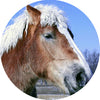
THE AGED HORSE:
Digestion of many nutrients decreases with age, and protein is no exception. To assist the older animal, up to 10g of lysine can be given per day. - The amount of lysine to supplement depends on weight, exercise level and life stage of the horse or pony. For full details please download this full guide.
-

"I bought a 2yo warmblood in Dec 2013. She had a really short nose bridge which kept her in a cob halter, but thanks to putting her on 10g lysine/day she grew & grew - not just upwaards but Rosie has produced a better length of nose. I am so happy!!! Thank you!!!", Donna, QLD -

Nutrition for the nursing mare
With a foal on the ground to look after, a nursing mare's nutritional requirements are at an all time high. The tranquil picture of mother and baby together in the paddock can obscure the demands of motherhood. > read more

Feeding the foal
The nutrition a foal receives in its first 18 months of life help set the foundations for healthy musculoskeletal development and future athletic potential, or can lead to developmental disorders that can plague the horse for the rest of its life. > read more

Feeding the older horse
If you are looking after an aged horse (20 years+) then his dietary needs are going to change as he gets older. Here are some elements to consider when planning the diet for your senior, to help keep him healthy and happy during his ‘Golden Years’. > read more
Moody Mare
$147.60
- It's Spring: the sun is shining, the grass is growing and your mare has turned into a fire-breathing dragon. Moody Mare can help soothe the behaviour exhibited during the peaks and troughs of the oestrus cycle:
The ovarian hormones can have a significant impact on a mare’s mood, level of arousal, sensitivity to pain and cognition. The herbal ingredients in Moody Mare help to balance hormonal levels during her cycle.- tail swishing, squealing
- aggression, kicking, biting
- poor performance, easily distracted, unwilling to work
- sensitive to pain, sensitive to being touched / tacked up
- excessive flirting
- repeated urination
- 100% dried herbal ingredients:
Chastetree Berry (Vitex agnus-castus) has the effect of stimulating and normalizing pituitary gland functions, especially its progesterone function.The greatest use of Chasteberry lies in normalizing the activity of female sex hormones and it is thus ideal for premenstrual stress.
Dong Quai a traditional Chinese herb which helps balance oestrogen levels, is high in vitamins and minerals, works as an antispasmodic and helps calm the nervous system.
Chamomile (Matricaria recutita) is probably the most widely used relaxing nervine herb in the western world. It relaxes and tones the nervous system; as an anti-spasmodic herb it helps relieve stomach cramps, it works on the peripheral nerves and muscles, and so it indirectly relaxes the whole body. (Moody Mare is available with no Chamomile, replaced with whey protein concentrate). - For horses give 2 level scoops (30g) in the morning mixed with feed. For ponies give 1 level scoop (15g) in the morning mixed with feed. Do NOT give to pregnant or lactating mares or those recently served by a stallion.
- "I am so impressed with only being on it for 1 week on moody mare and my mare came into season. With out any obvious signs and with no pain for her . So happy for my girl", Rachel De Silva
Omega-3
$50.00
- eQuus Care Nutrition Omega 3 is a stabilised dry source of essential polyunsaturated fatty acids EPA (Eicosapentaenoic acid) and DHA (Docosahexaenoic acid).
BENEFITS:
- Maintain joint flexibility
- Antioxident
- Promote healthy hooves
- Promote a healthy, glossy coat
- Maintain hormonal balance
- Maintain a healthy heart and good circulationOmega 3 is highly unstable: it is destroyed in hay making; it is destroyed in the process that stabilises most commercially available vegetable oils; and fresh sources, such as ground flax seed, quickly oxidise and go rancid. eQuus Care Nutrition's Omega-3 is an easy to use, easy to store dry product: the essential fatty acid is encapsulated by a protective starch coating. This coating allows for the easy release of fatty acid in the digestive system, but protects it from oxidation and moisture. -
Fatty Acid Profile:
C14:0 - C18:1 20%
C20:1 - 2.9%
C22:1 - 3.1%
C18-2 - 2.25%
C18:3 - 0.75%
C20:5 - 3.0%
C22:5 - 1.2%
C22:6 - 3.25% -
Horses 2 scoops per day (30g) Ponies 1 scoop per day (15g) Breeding Stallions 4 scoops per day (60g) Broodmares 4 scoops per day (60g) from 10 days pre-foaling to 52 days postpartum, or for whole lactation period until weaning. - We would love to hear your feedback on this product. Drop us a line here:
-

The ABCs of EFAs
EFA isn't another equestrian governing body, it stands for Essential Fatty Acids. These are the polyunsaturated 'good' fats that the body needs for various metabolic processes. > read more
Stress Relief
$90.00
- As with humans, stress adversely affects your horse's health, suppressing his immune system, making him susceptible to infection and disease. Likewise, stress affects behaviour and athletic performance. Combine these two products to help relieve stress and anxious behaviour in your horse. Calm Support is high in Magnesium, Thiamine and B vitamins, addressing nutritional deficiencies that can cause anxious behaviour, whilst Omega-3 helps maintain hormonal balance, which can be disrupted by stress.
-
Calm Support:
MAGNESIUM is a major mineral critical to the normal functioning of skeletal and heart muscle and the nervous system. It is a component of over 300 enzymes in the body. Hypersensitivity and irritability can be indicators of dietary magnesium deficiency. Diets high in calcium can result in a magnesium deficiency, as calcium can compete for absorption in the body.
B Vitamins are important to every cell and organ in the horse's body. B vitamins also work together, so supplementing with a combination of B vitamins is beneficial. A horse exhibiting nervousness, excitability, irritability, or jumpiness may be exhibiting symptoms of Vitamin B deficiency. B vitamin supplementation is recommended for horses being heavily exercised and for those under stress.
Thiamine (Vit B1) - Thiamine is required for the metabolism of fats, proteins and carbohydrates, for DNA and cell replication and for the transmission of nerve impulses. Thiamine can have a calming effect on horses, and symptoms of a thiamine deficiency include nervousness, irritability and excitability.Folic acid (Vit B9) - Adequate levels are vital to the production of normal levels of serotonin in the brain. Folic acid is also required for the normal production of red blood cells, protein metabolism and cell duplication. Heavy exercise causes folic acid levels to drop.
Pyridoxine (Vit B6) - Pyridoxine assists in the production of neurotransmitters in the brain and has a critical function in the use of glycogen in muscle cells. Nervousness or irritability may be a sign of dietary deficiency because of pyridoxine's function in the production of brain chemicals.
Niacin (Vit B3) - Niacin is needed for proper energy production, cholesterol, fatty acid and protein metabolism, DNA replication, cell reproduction and the normal functioning of the nervous system.
Pantothenic acid (Vit B5) - Pantothenic Acid is needed for energy metabolism, the manufacture of steroid hormones and for the chemicals needed in the transmission of nerve impulses.
Riboflavin (Vit B2) - Riboflavin plays a critical role in the generation of energy aerobically, the normal functioning of other B vitamins and is essential to the conversion of tryptophan into niacin.
-
Calm Support:
20g dose per day for a 500kg horse. This can be doubled if an animal is particularly stressed. As behaviour modifies, reduce dose to a maintenance dose of 20g per day. A 20g scoop is included in the pack. For foals, miniatures and small ponies please download our 'Supplementation Guide for Ponies and Miniatures'Omega-3
Horses 2 scoops per day (30g) Ponies 1 scoop per day (15g) Breeding Stallions 4 scoops per day (60g) Broodmares 4 scoops per day (60g) from 10 days pre-foaling to 52 days postpartum, or for whole lactation period until weaning. -

"Since using Calm Support from eQuus Care Nutrition the difference in my horses is second to none, not only in the ring but in general handling and travelling. They are so much more relaxed and the results speak for themselves". Merrick Ubank, World Cup Showjumper 
"I have been using your Calm Support for 5 months now and love it to bits, the improvement has been outstanding. I do endurance racing and over the 5 months his energy and calmness is unbelievable...On the weekend we got our first ever podium finish!" Alan W, Endurance Rider.
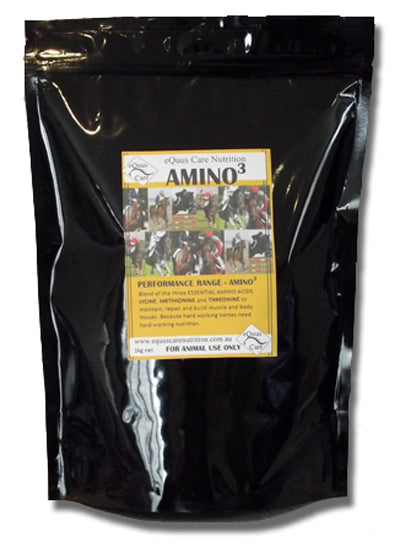
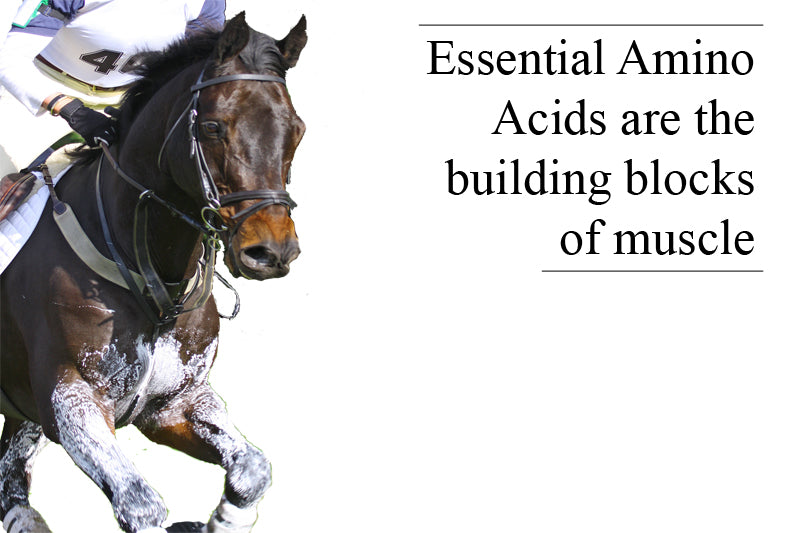
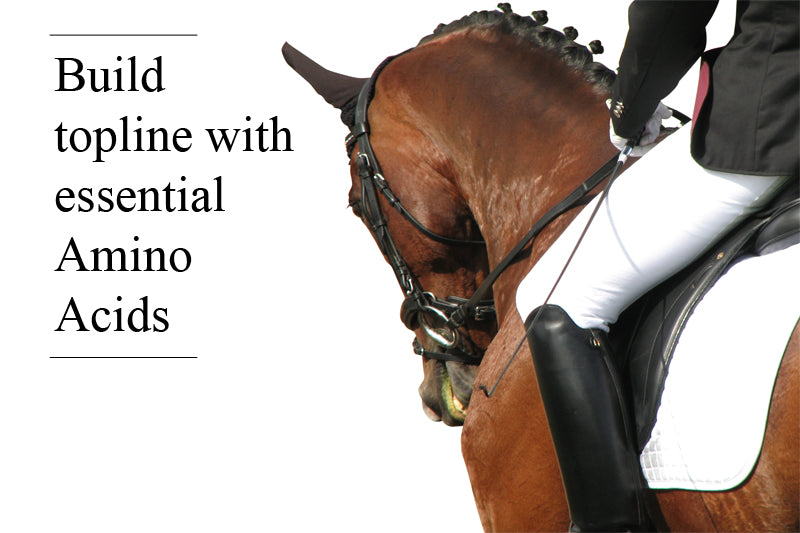
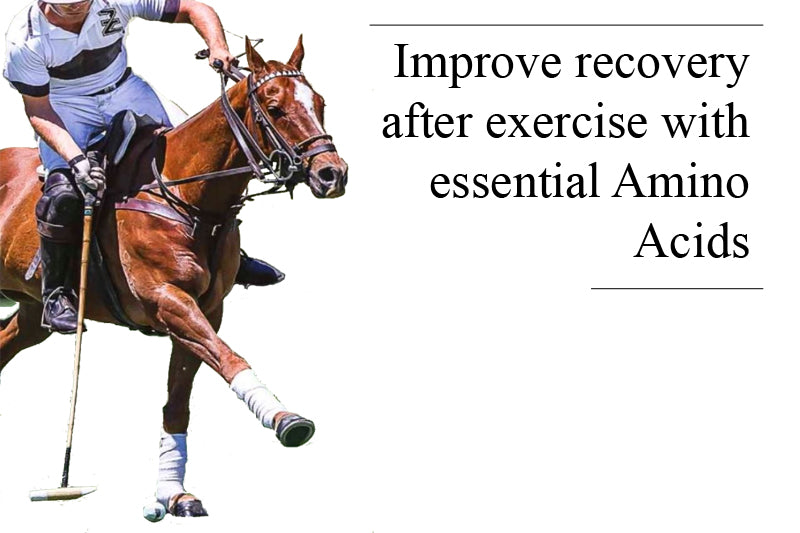


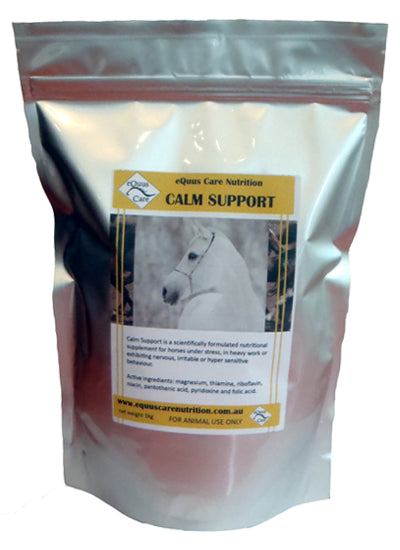
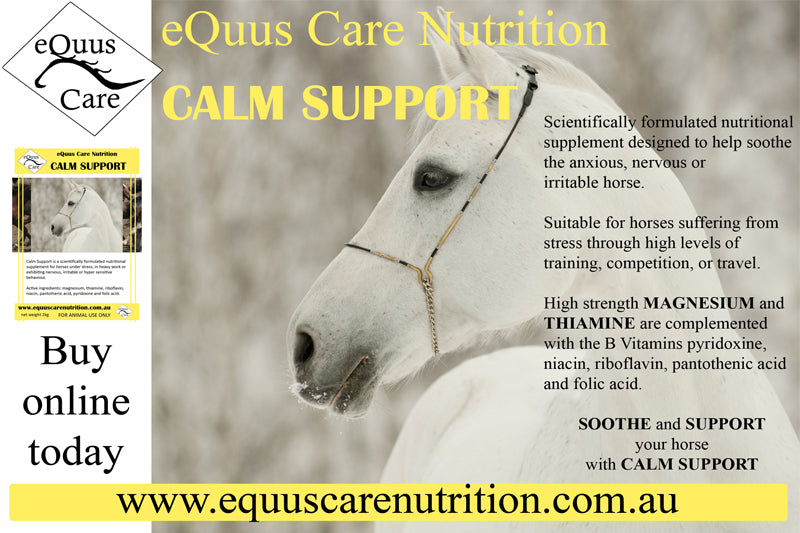
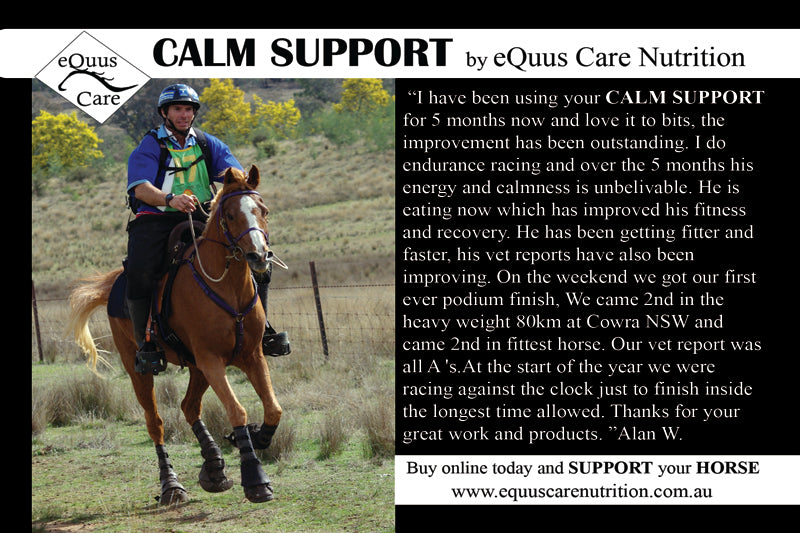
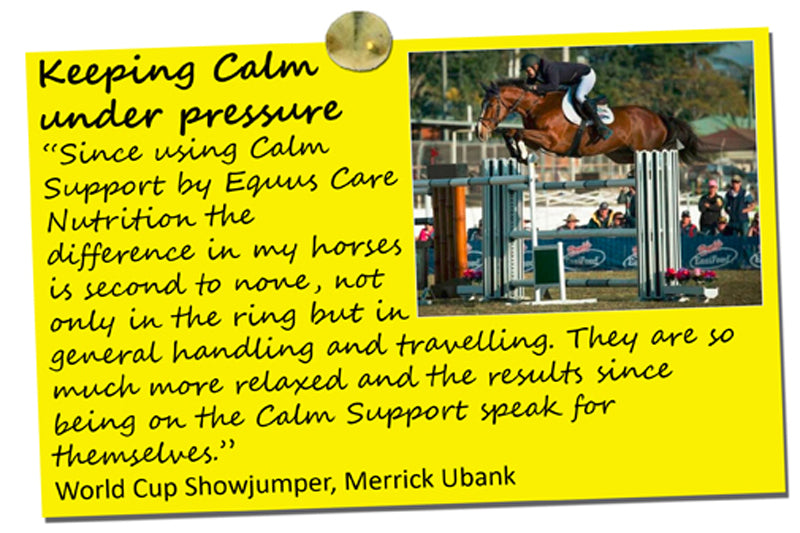
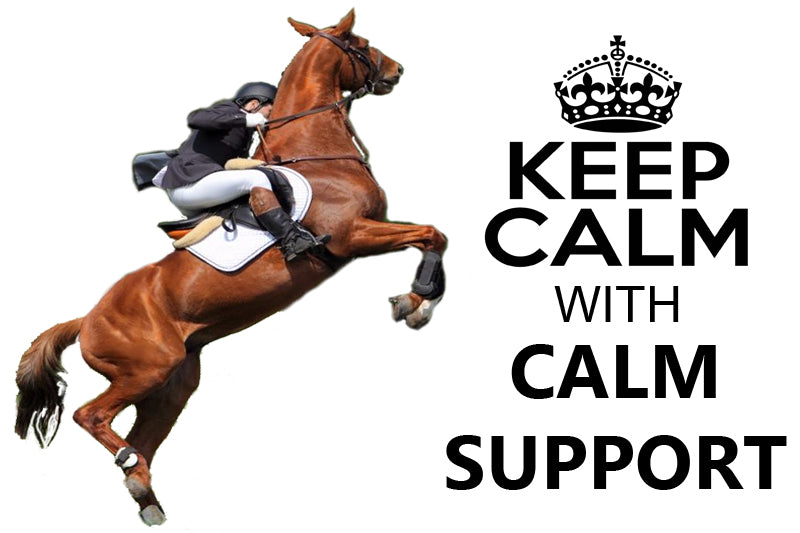
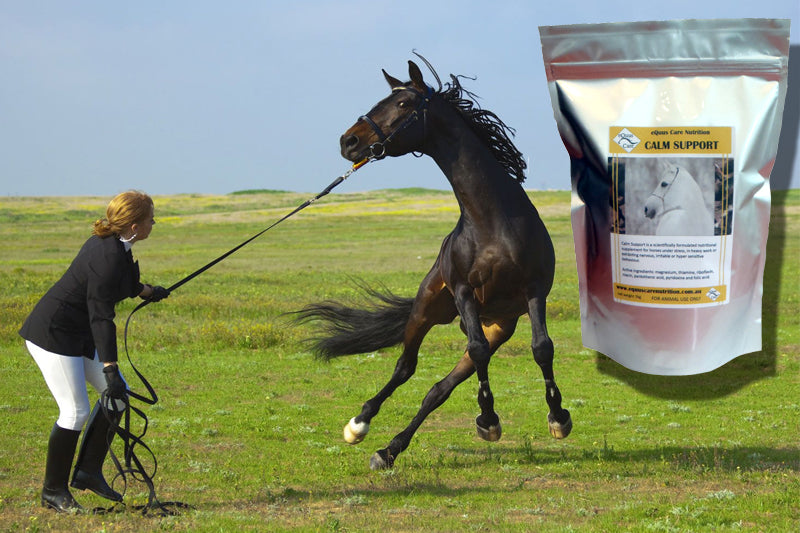


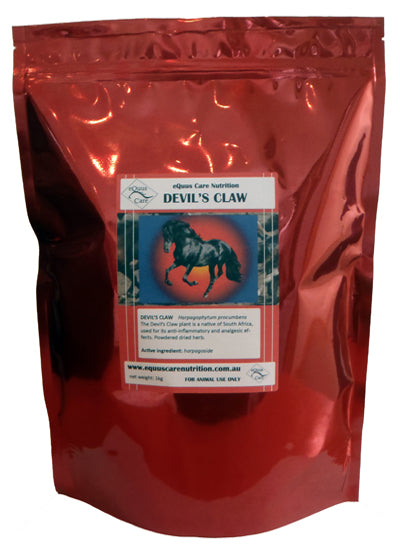
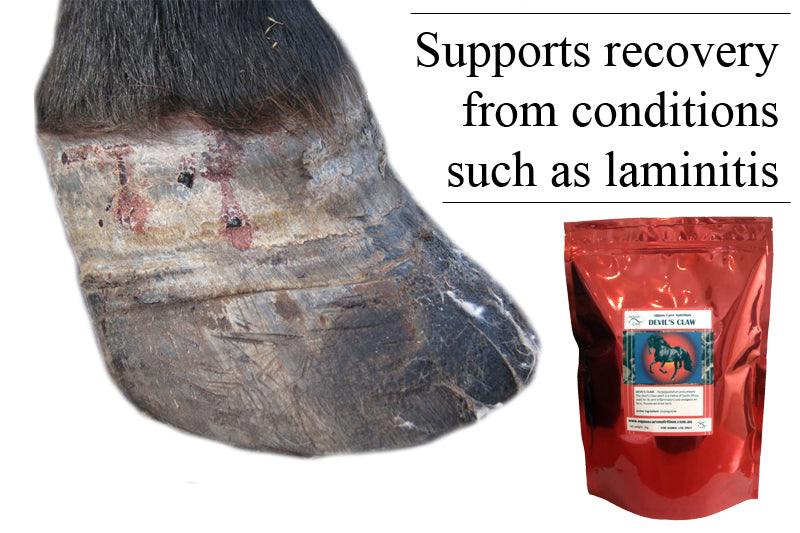
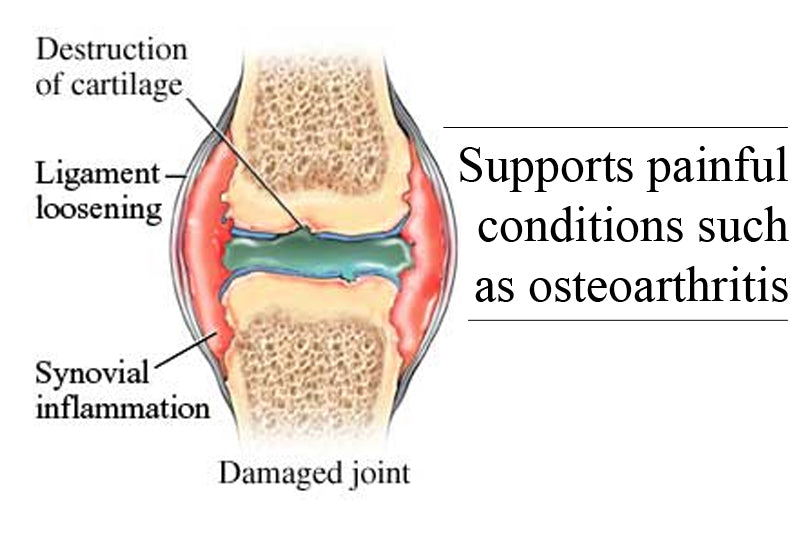
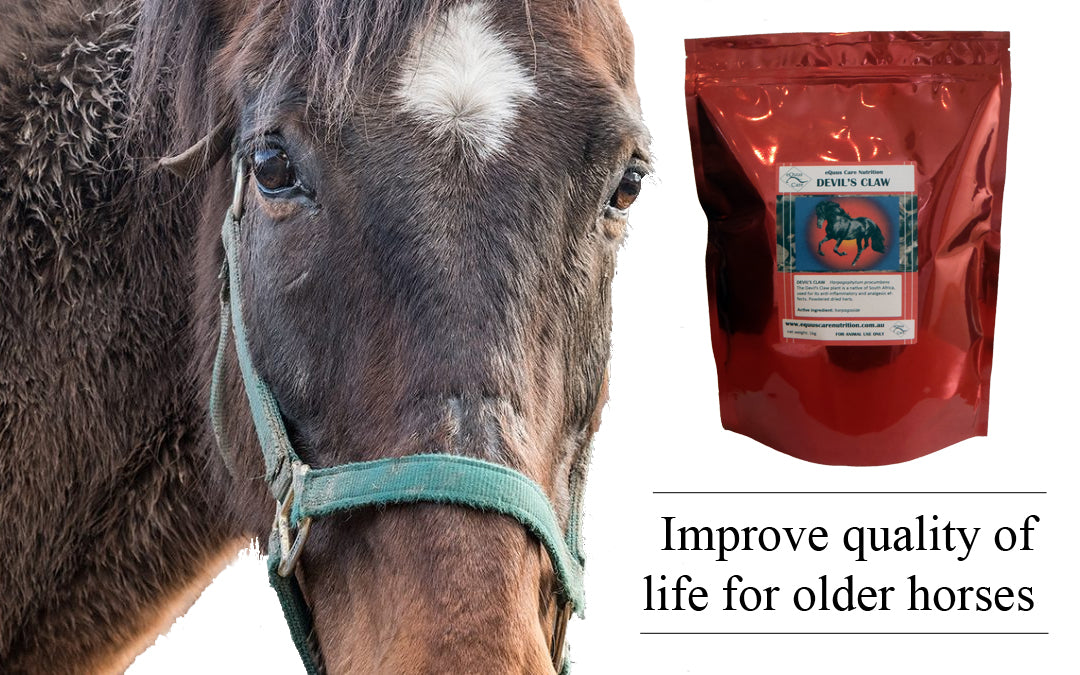
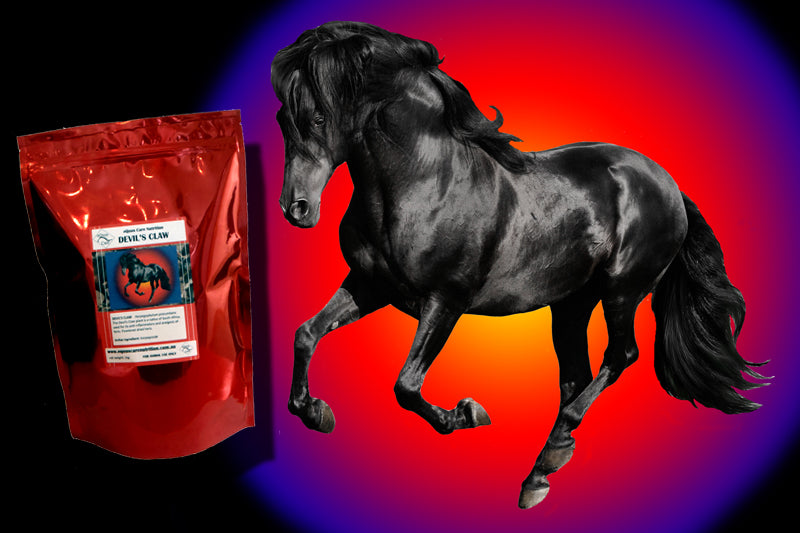
 The Devil's Claw plant (Harpagophytum procumbens) is a native of South Africa, used for its anti-inflammatory and analgesic effects. The active ingredient of Devil's Claw is harpagoside, found in the roots and tubers. Its effectiveness has been found to be comparable with that of cortisone and phenylbutazone. Animal studies suggest that Devil's Claw can help fight inflammation, whilst human trials have seen a reduction in pain, and improved function in people suffering with osteoarthritis and back and neck pain.
The Devil's Claw plant (Harpagophytum procumbens) is a native of South Africa, used for its anti-inflammatory and analgesic effects. The active ingredient of Devil's Claw is harpagoside, found in the roots and tubers. Its effectiveness has been found to be comparable with that of cortisone and phenylbutazone. Animal studies suggest that Devil's Claw can help fight inflammation, whilst human trials have seen a reduction in pain, and improved function in people suffering with osteoarthritis and back and neck pain. A trial that compared a devil's claw formula with Bute was conducted in 20 horses with bone spavin. Ten horses were given Bute and ten were given the herbal formula. Horses were evaluated clinically by means of observation for gait asymmetry and irregularity on movement in a 6m circle, a flexion test, and xray confirmation within the previous 6 months. Each test was rated 0 (undetectable lameness) to 4 (maximum lameness), and a composite score (with a maximum score of 12 for serious lameness) was given at each examination. By day 120, the horses given Bute had a group score of 8.6, and those given the herbal formula had a score of 6; this was a statistically significant difference. Montaven S. Efficacy of a phytotherapeutic preparation based on Harpagophytum procumbens in case of bone spavin of adult horses. Prat. Vet Equine 1994
A trial that compared a devil's claw formula with Bute was conducted in 20 horses with bone spavin. Ten horses were given Bute and ten were given the herbal formula. Horses were evaluated clinically by means of observation for gait asymmetry and irregularity on movement in a 6m circle, a flexion test, and xray confirmation within the previous 6 months. Each test was rated 0 (undetectable lameness) to 4 (maximum lameness), and a composite score (with a maximum score of 12 for serious lameness) was given at each examination. By day 120, the horses given Bute had a group score of 8.6, and those given the herbal formula had a score of 6; this was a statistically significant difference. Montaven S. Efficacy of a phytotherapeutic preparation based on Harpagophytum procumbens in case of bone spavin of adult horses. Prat. Vet Equine 1994


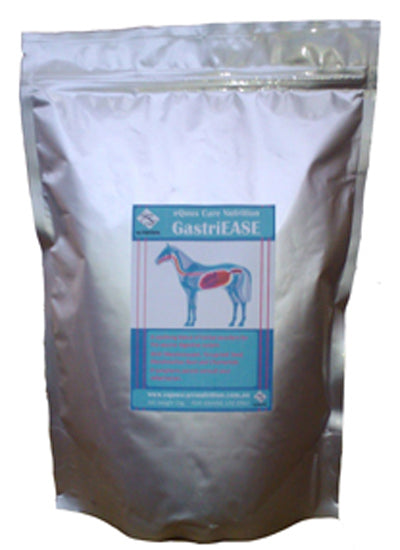
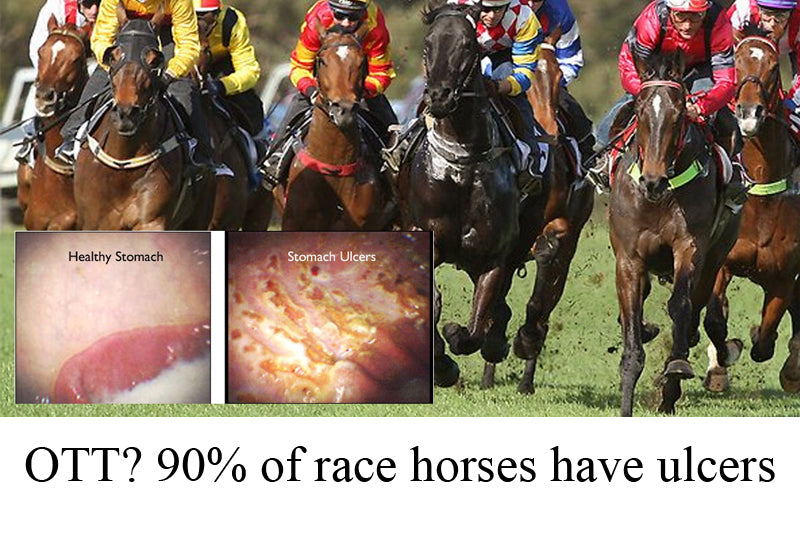
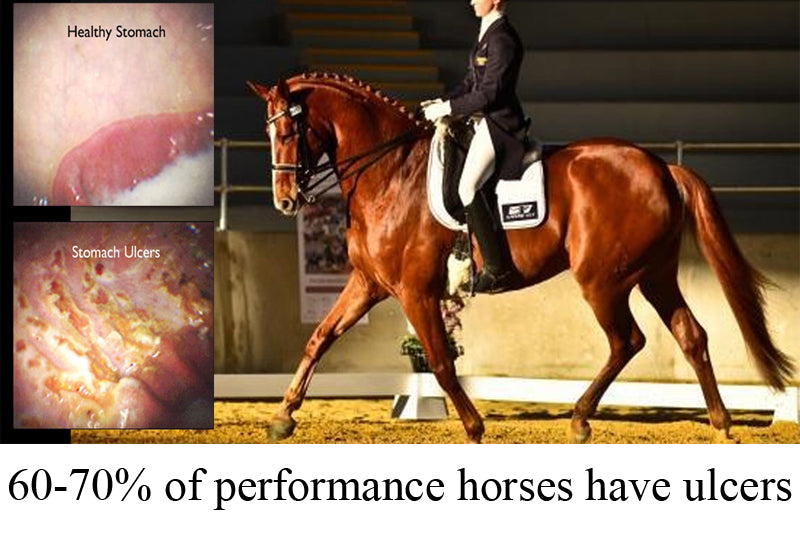
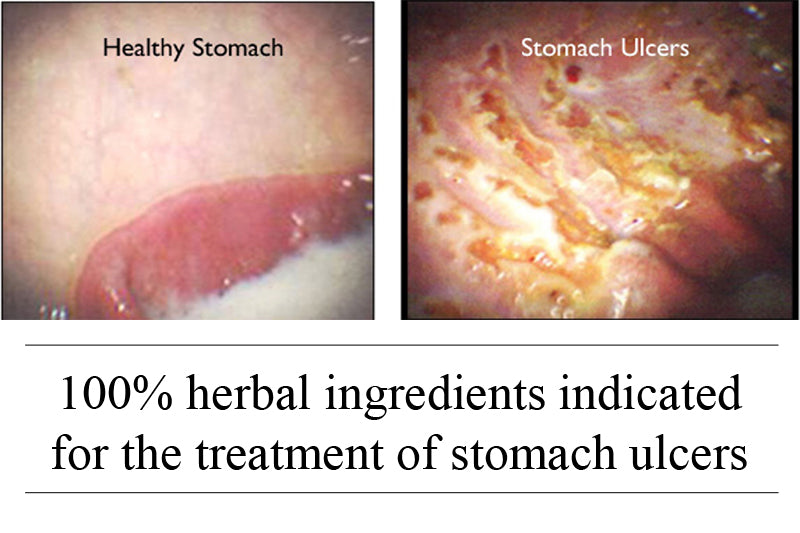
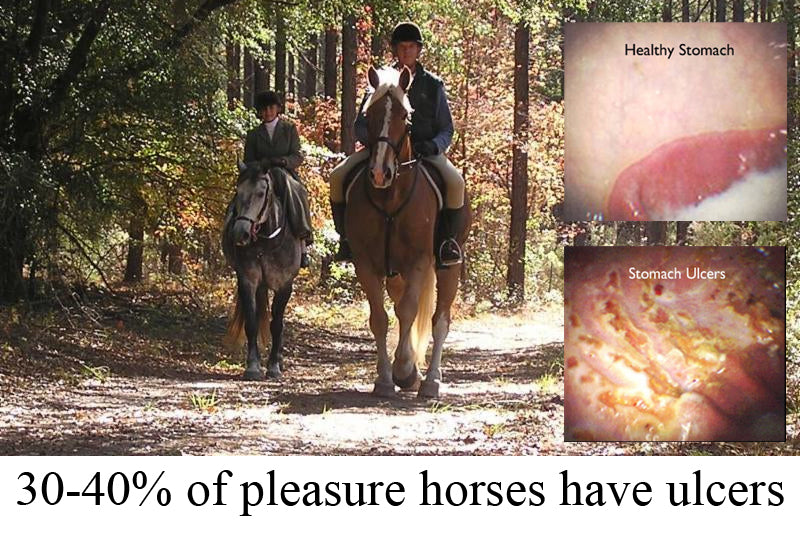
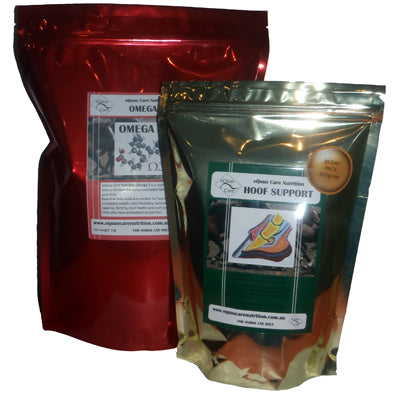
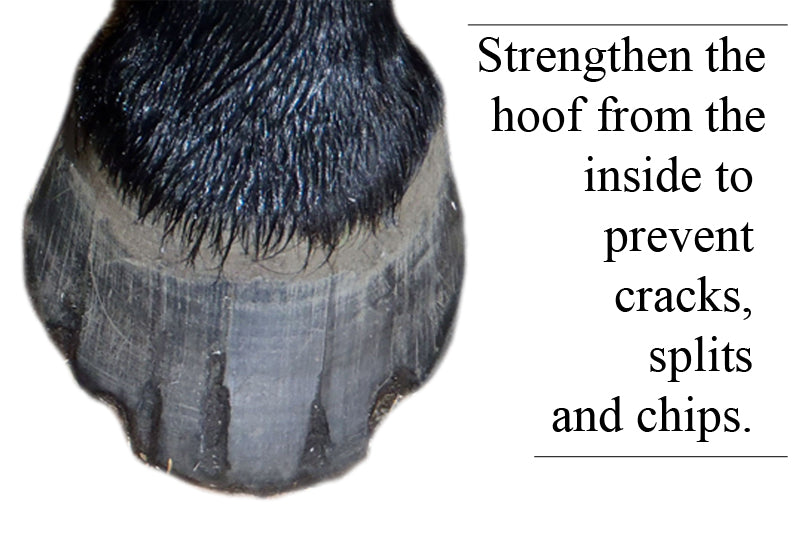
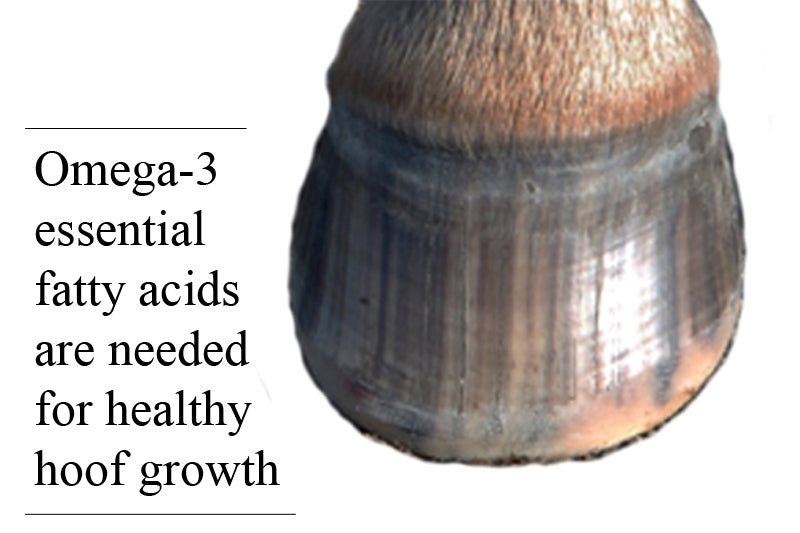




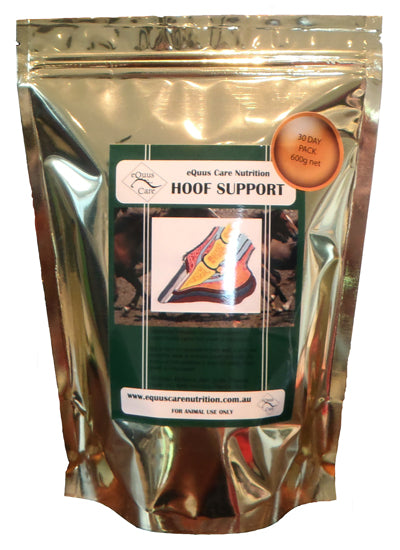
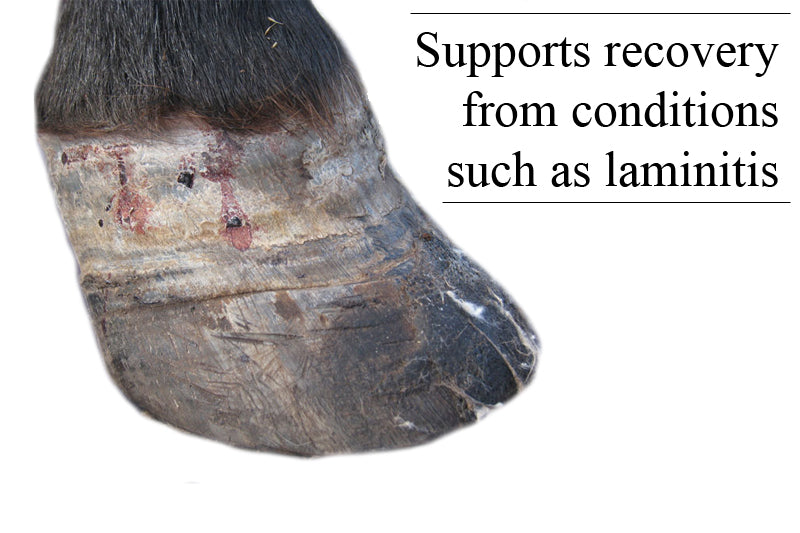
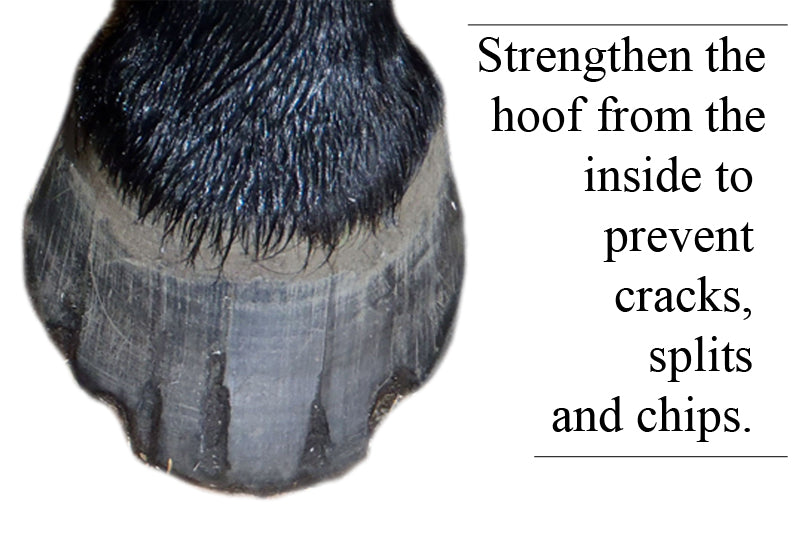

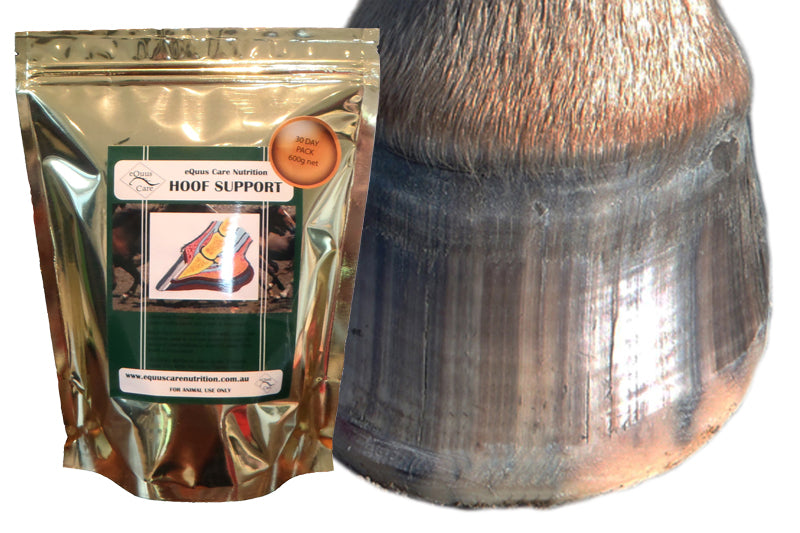

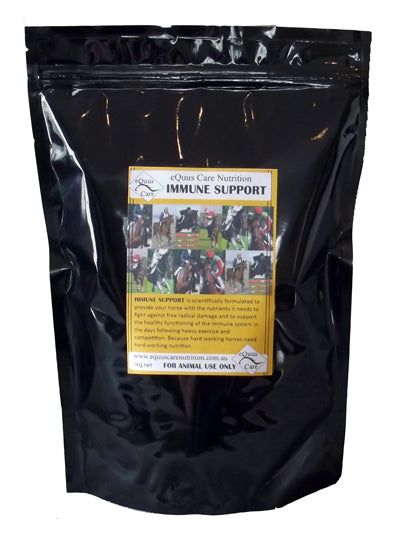
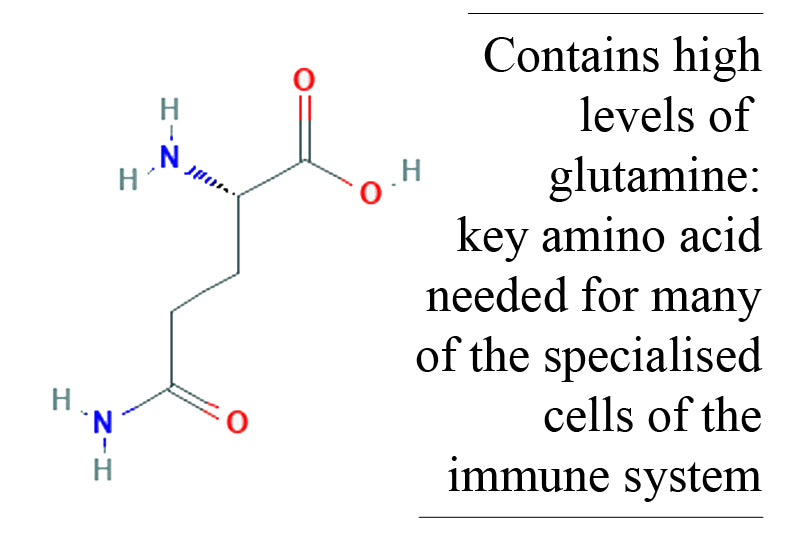
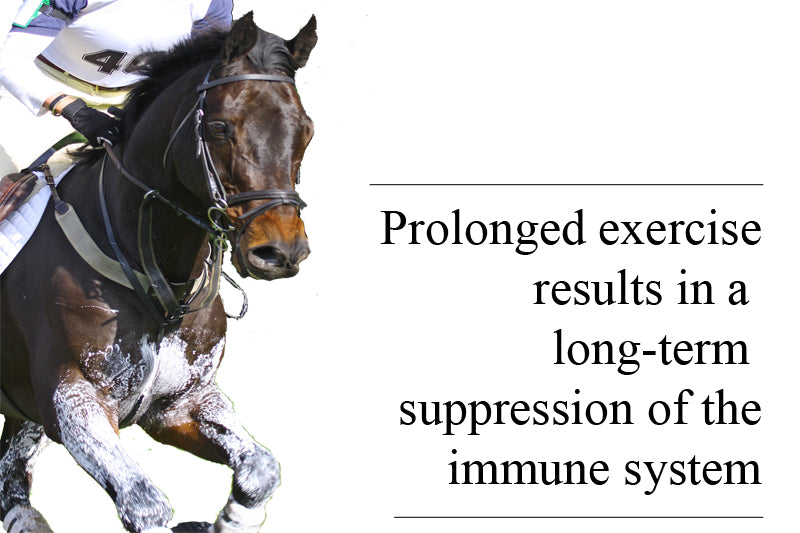
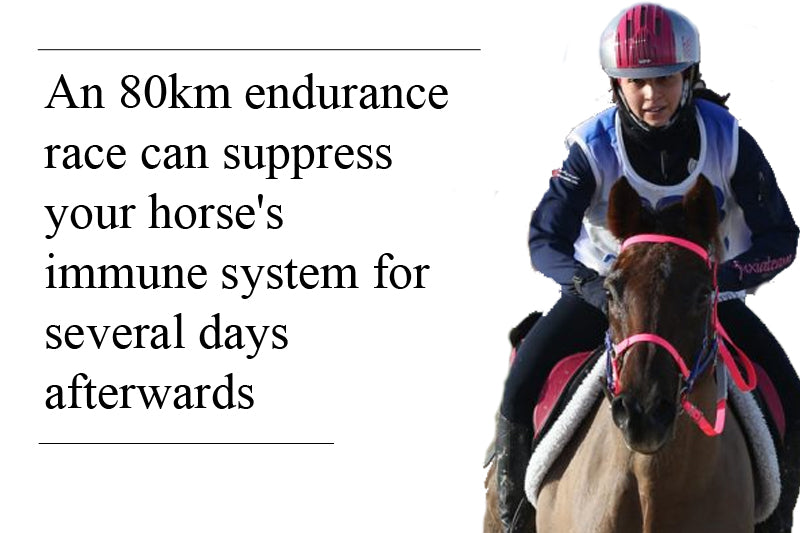
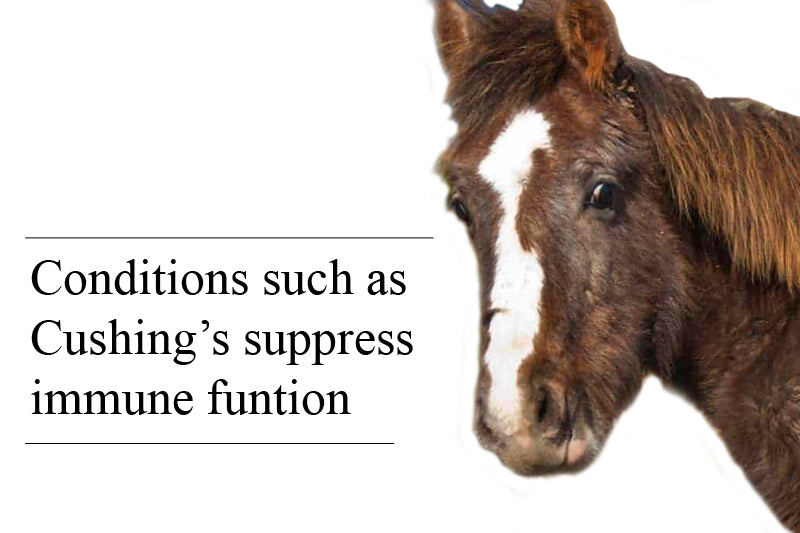

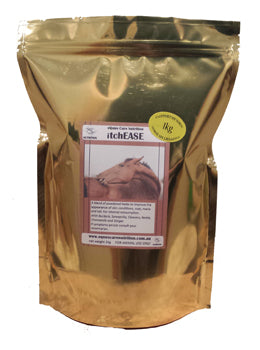
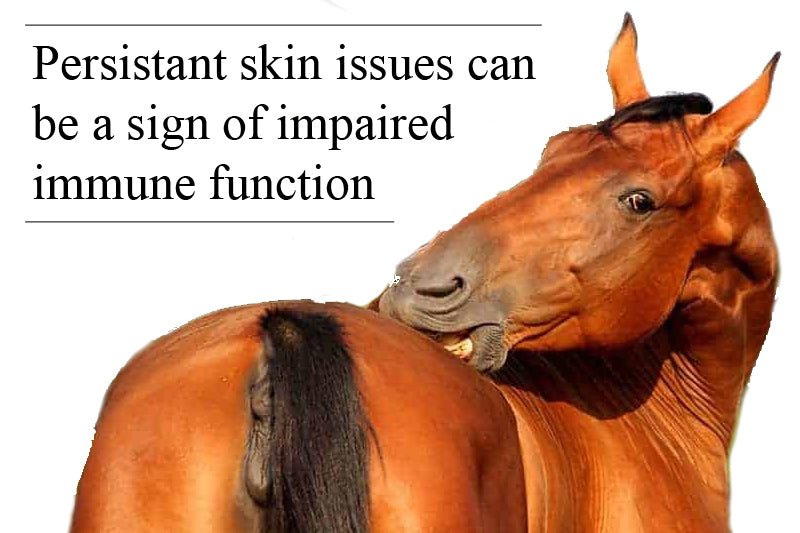
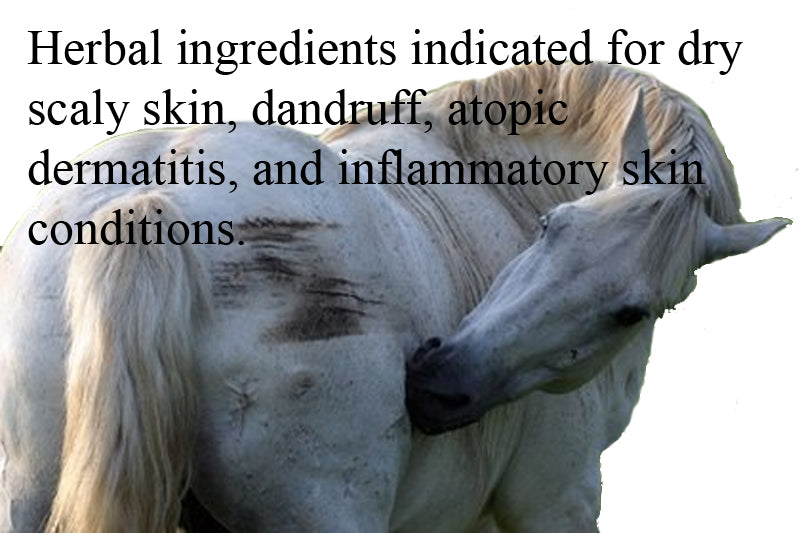
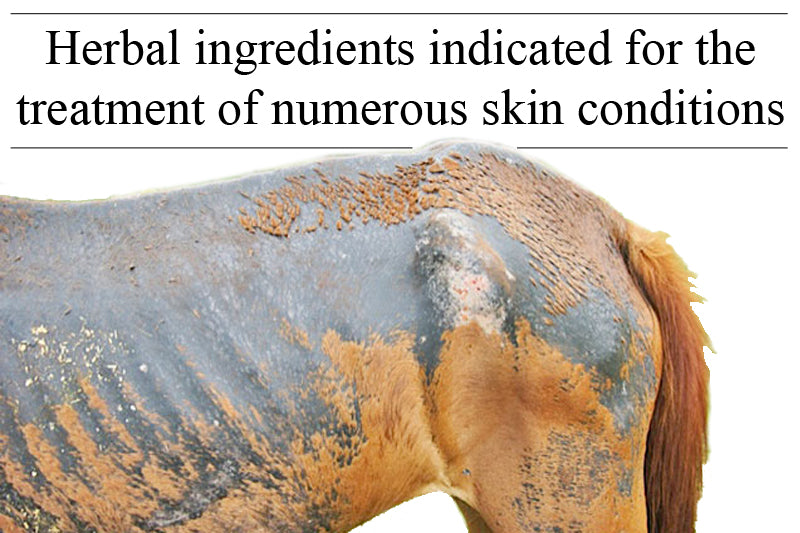
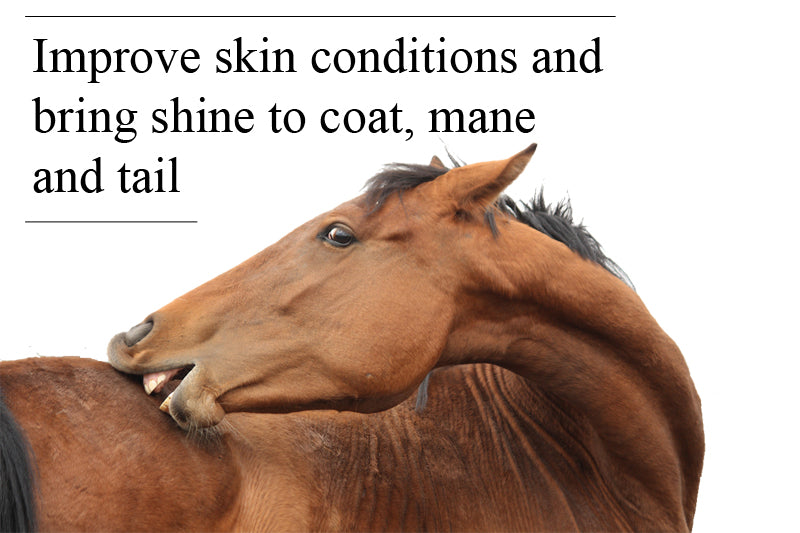
 "After 3 days on your itchEASE my Friesian WB Llewella has not scratched once today. We've shredded rugs, taken off hunks of skin and flesh, ended up bleeding. Today she is head down bum up, grazing and relaxed....I know I posted a few days ago, but words cannot express how grateful I am to you. I'm so overjoyed, I couldn't imagine having hours in a row rug free for Llewella, let alone two days. I've been crying today, I'm so happy and more importantly so is Llew". Linda S, WA.
"After 3 days on your itchEASE my Friesian WB Llewella has not scratched once today. We've shredded rugs, taken off hunks of skin and flesh, ended up bleeding. Today she is head down bum up, grazing and relaxed....I know I posted a few days ago, but words cannot express how grateful I am to you. I'm so overjoyed, I couldn't imagine having hours in a row rug free for Llewella, let alone two days. I've been crying today, I'm so happy and more importantly so is Llew". Linda S, WA.